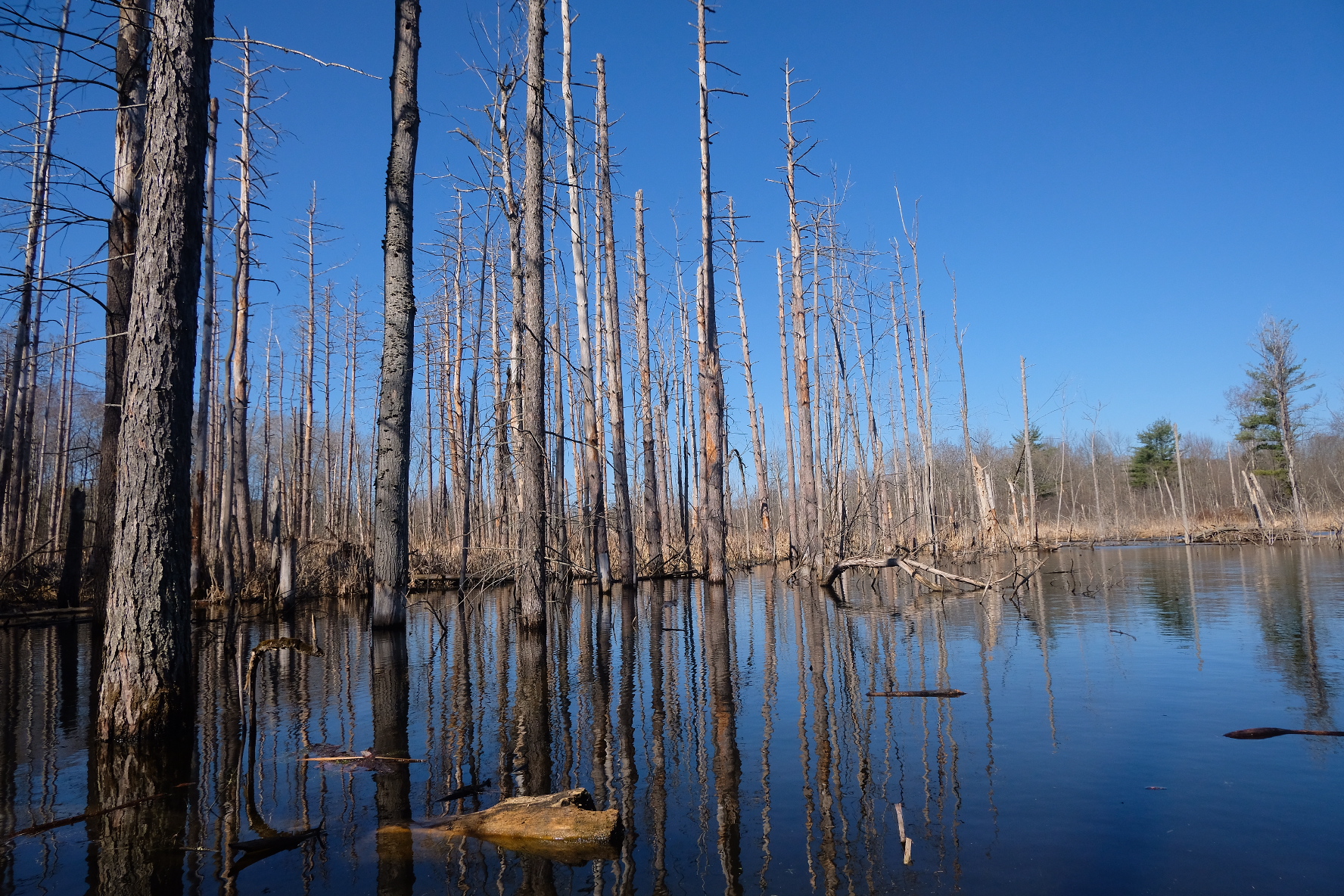
Welcome to the second week of Spring, Nuthatch families!
This week the Nuthatches started to get comfortable with the spring: mud, water, and new friends were highlights!
Note: Big thanks again to Emily Rose and Jamie Eggleston for contributing pictures!
On Tuesday, the Nuthatches got ready for a big trek. The plan was to go to the Beaver Pond! The last time we went there, there was snow on the ground and a chill in the air. This time, the ground was muddy and the sun shone down on us. We played foxtail at arrival, and some of the Nuthatches turned into backpacks! At circle, the Nuthatches reminded each other of the Three Respects: respect yourself, respect others, and respect the earth. We decided that on the way out, it was important to stay with the group. Jamie said we could think of it like a sandwich: the instructors were “bread”, at the front and back, and the kids were the filling! Our sandwich had lots of cheese in it.
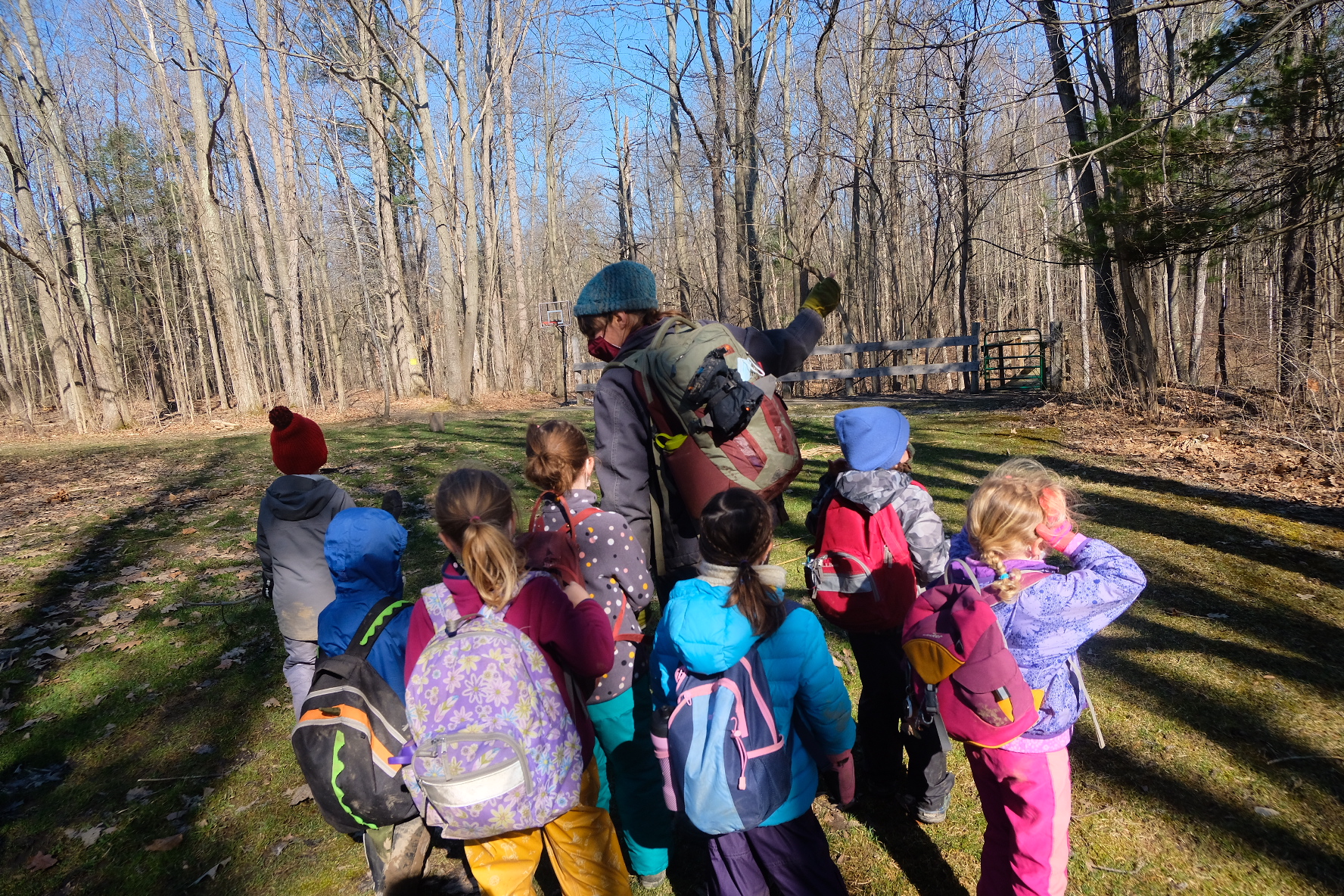
On the way out to the Beaver Pond, the Nuthatches had to be alert for some warnings. When the instructors yelled “Flash Flood!” everybody had to try to get off the ground to avoid the imaginary water. When they heard “Camouflage!” they had to hide in the forest. When they heard “T-rex walk!” they had to walk as quietly as they could as if they were a predator stalking its prey. The Nuthatches did a great job reacting to the warnings, and they used their five senses to make observations too. We found lots of beautiful clear puddles that we couldn’t resist stomping in. There was a newt floating silently in one! We also saw big birds soaring above us: a bald eagle and a red-tailed hawk!
At the Beaver Pond, there was a clearing with a shelter where we could have lunch. We set down our packs and were quickly drawn to the water, where we climbed walked along the dam, looked for snails, made splashes with sticks, and even collected some cattails. It was so peaceful and beautiful out there at the crystal clear water. Then we sat down to a yummy lunch in the clearing, and trekked back to the front field in high spirits.
On Thursday, Mother Nature had played an April Fool’s joke on us: there was snow on the ground and in the branches! But the Nuthatches weren’t deterred. We played in the snow and made some big snowballs, which we rolled all the way out to camp with us. It was a good workout. We stopped by the creek to use our five senses to observe the landscape. Then we set our packs down in camp and ran out to the field for a rousing game of Hawks and Nuthatches! The Nuthatches tried to find as many pinecones as they could while avoiding the Hawks. When a Nuthatch got tagged, the Hawk asked a nature question. Some of the wonderful questions we came up with were:
How does bark get on trees? How does dirt get underground? Where do humans come from? Why do people cut down trees? Why are leaves so thin and strong? Where do trees come from? What makes good packing snow? Why is snow so fluffy sometimes?
Then we noticed that some of the Nuthatches had disappeared! Where could they have gone? We decided we had to track them to find out. We opened our eyes and ears: there was a soft drumming sound coming from the forest, and also some high-pitched calls. The first sound was a ruffed grouse! The second sound was the rest of our group! We followed the tracks and the sound until we found them, hiding under a white pine tree. Everybody at preschool sure is sneaky! We all came back to camp as a group, and Jamie showed us how to start a fire using flint and steel. Emily read the book “Penguin and Pinecone” by Salina Moon and we told some silly knock-knock jokes. Then it was time to head back to the field.
Have a lovely spring break, Nuthatch families! We’ll see you in a week.

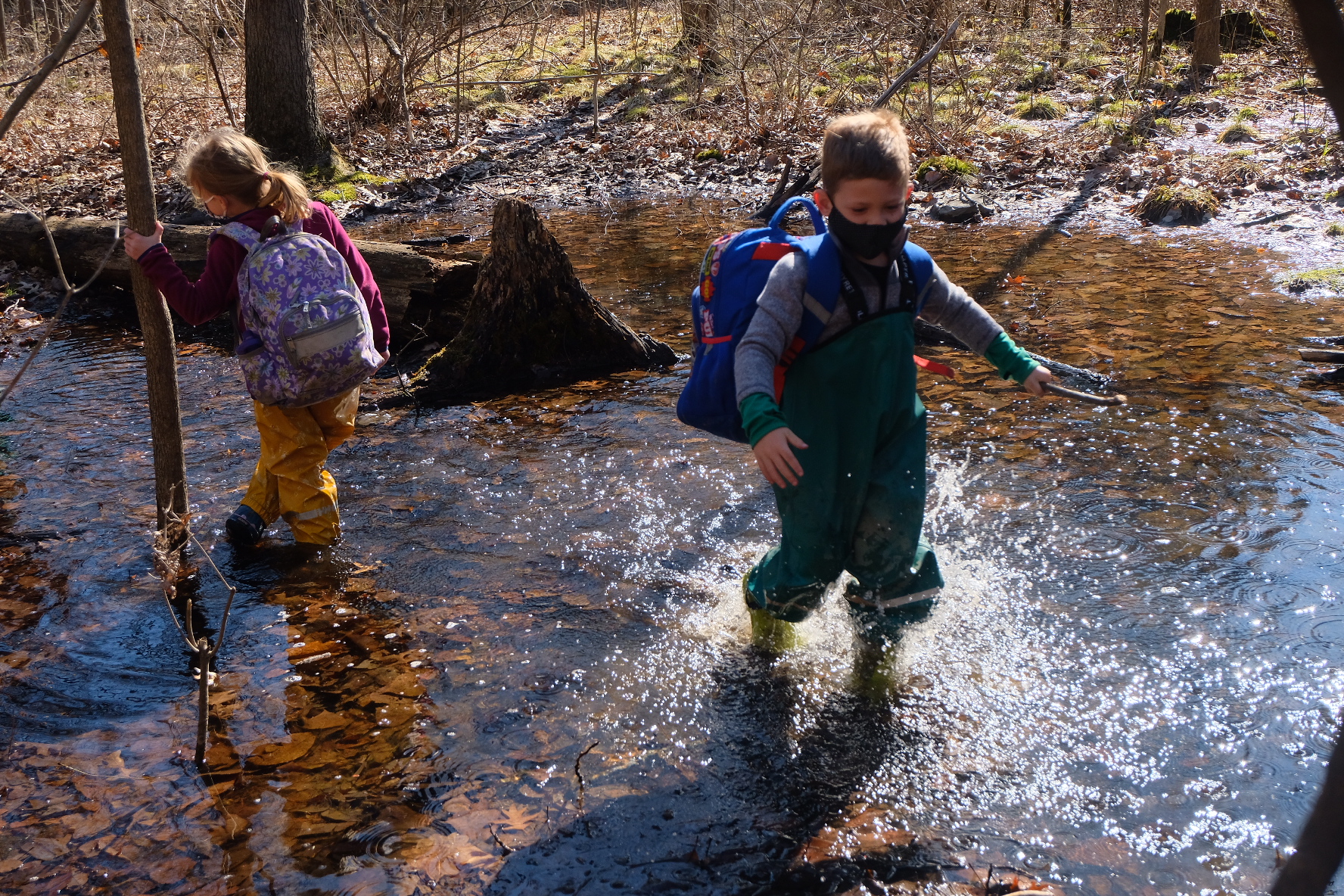
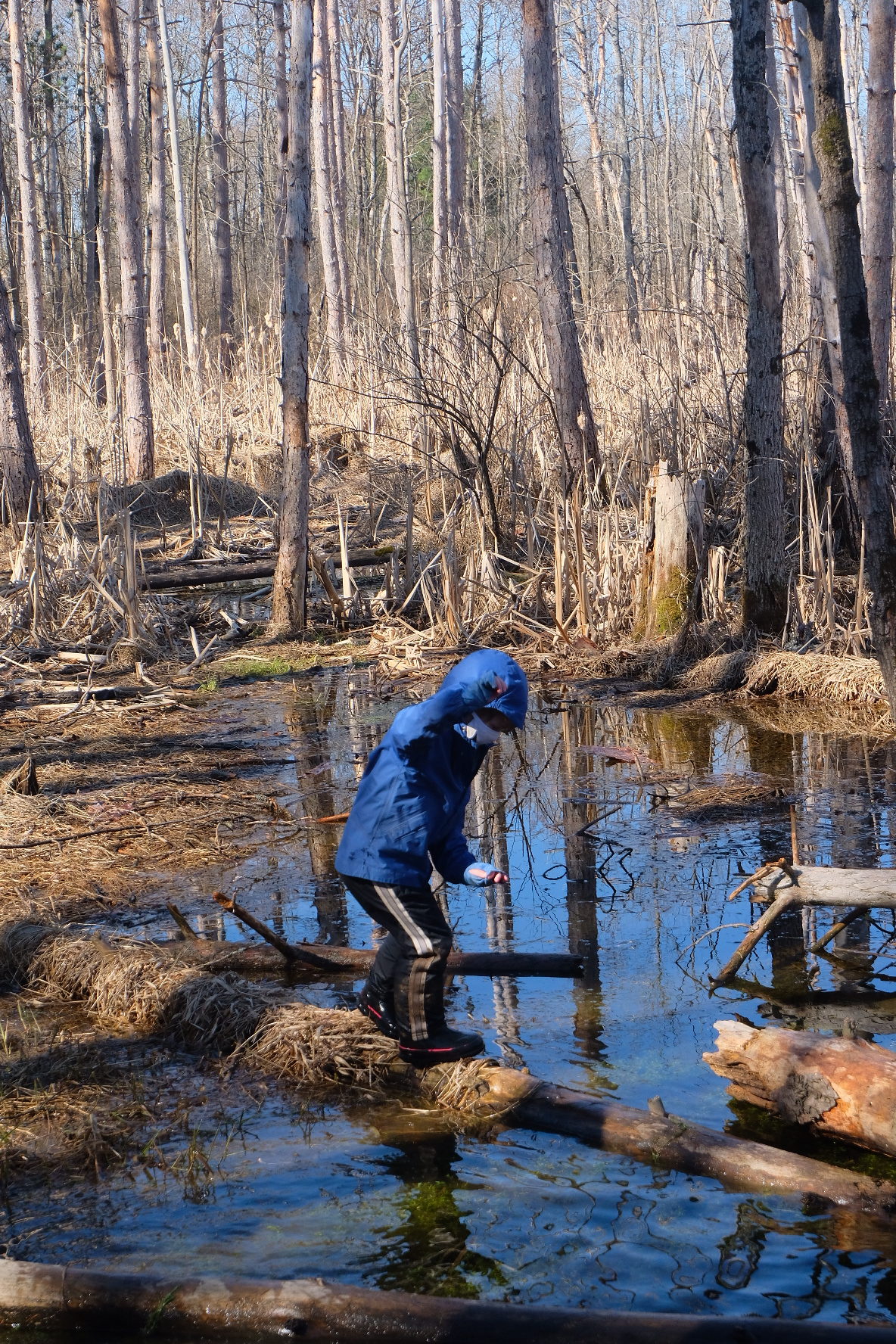
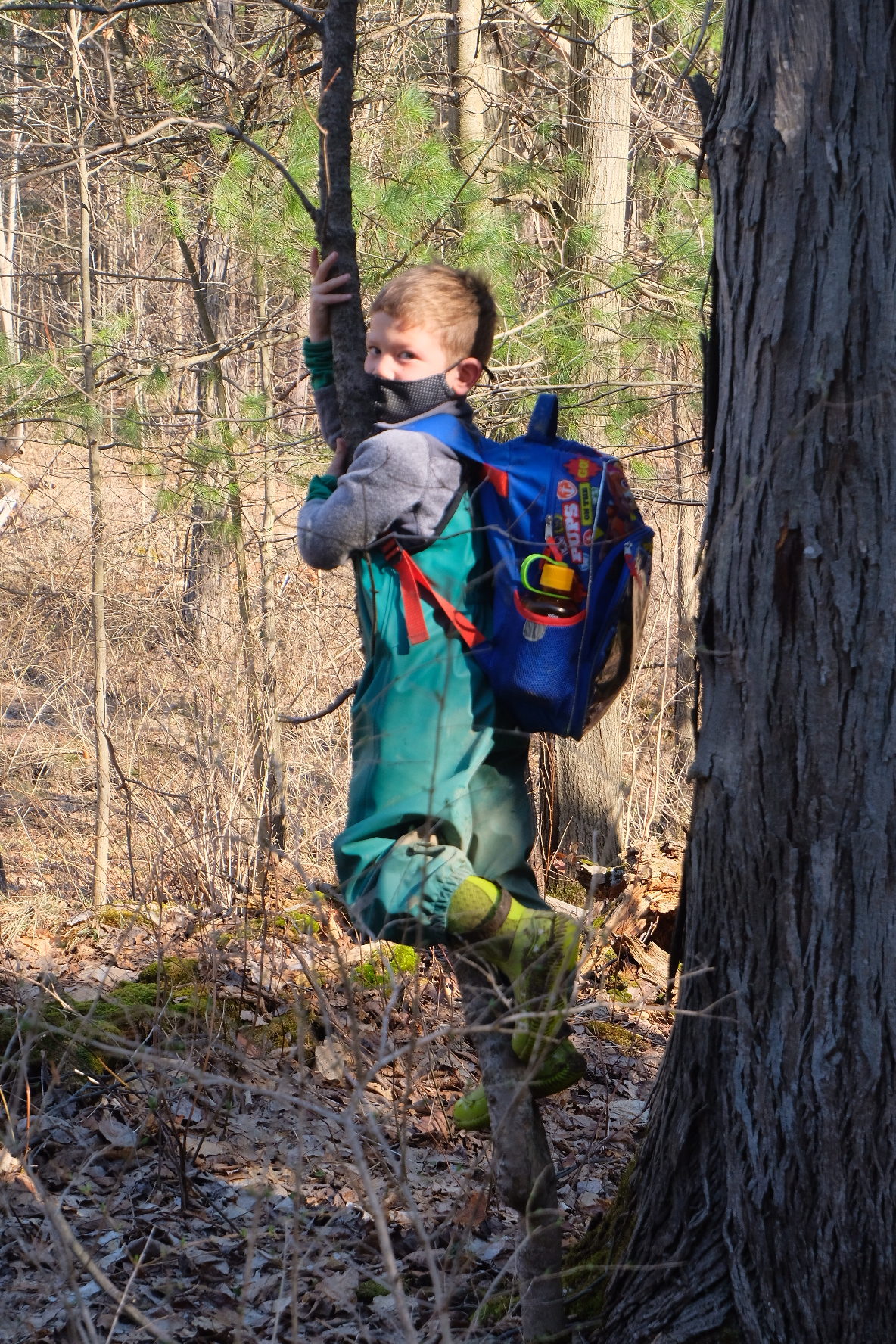
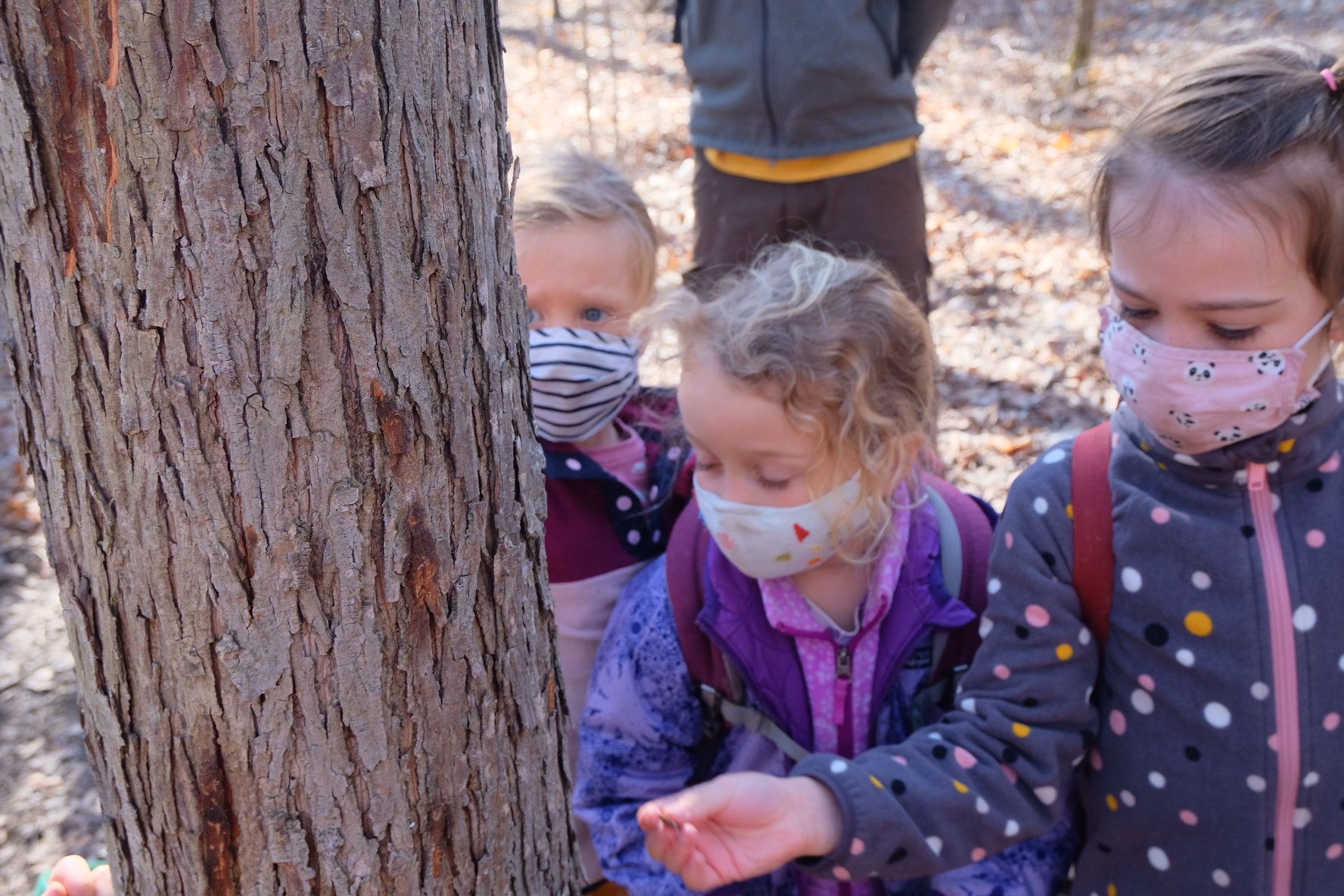
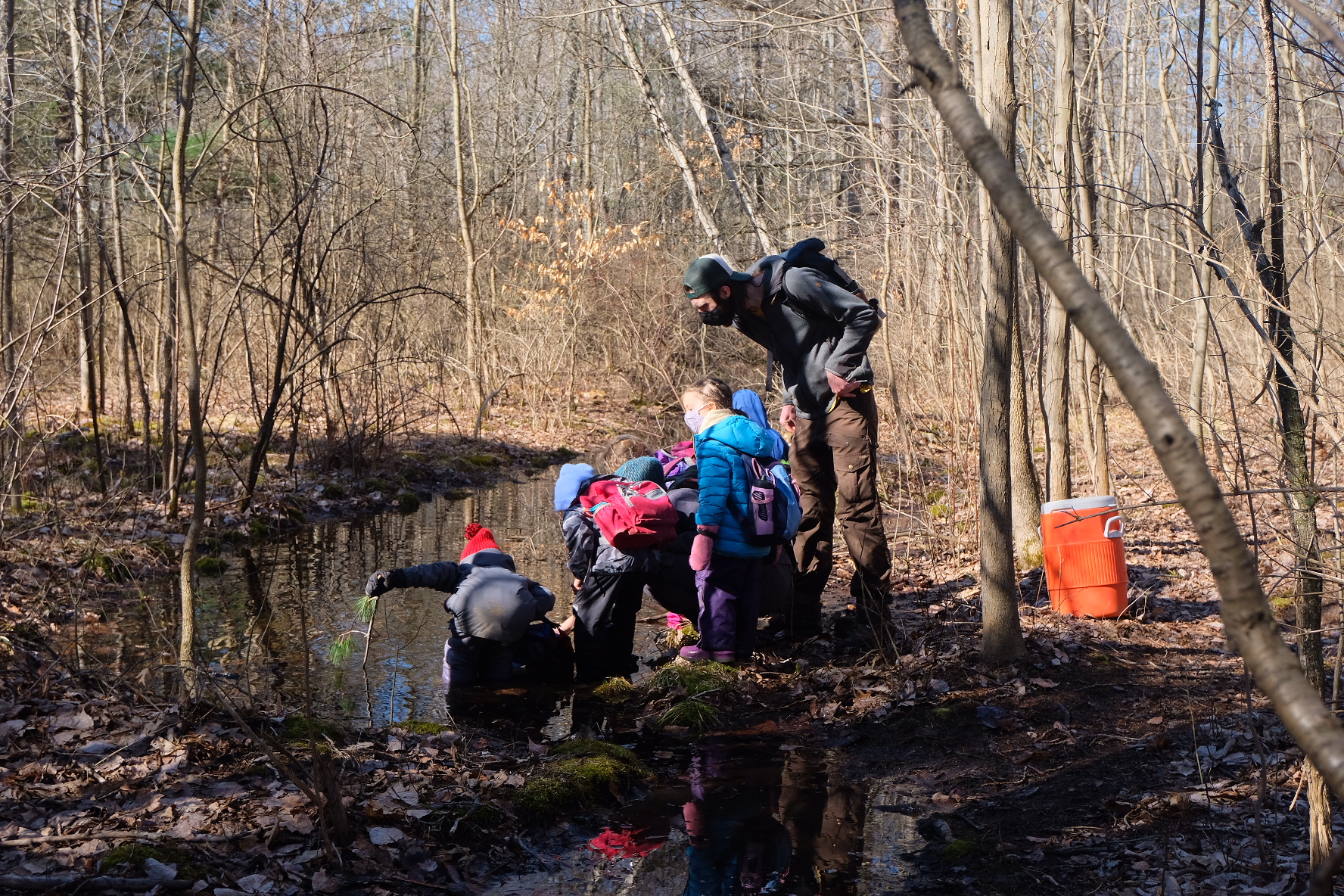
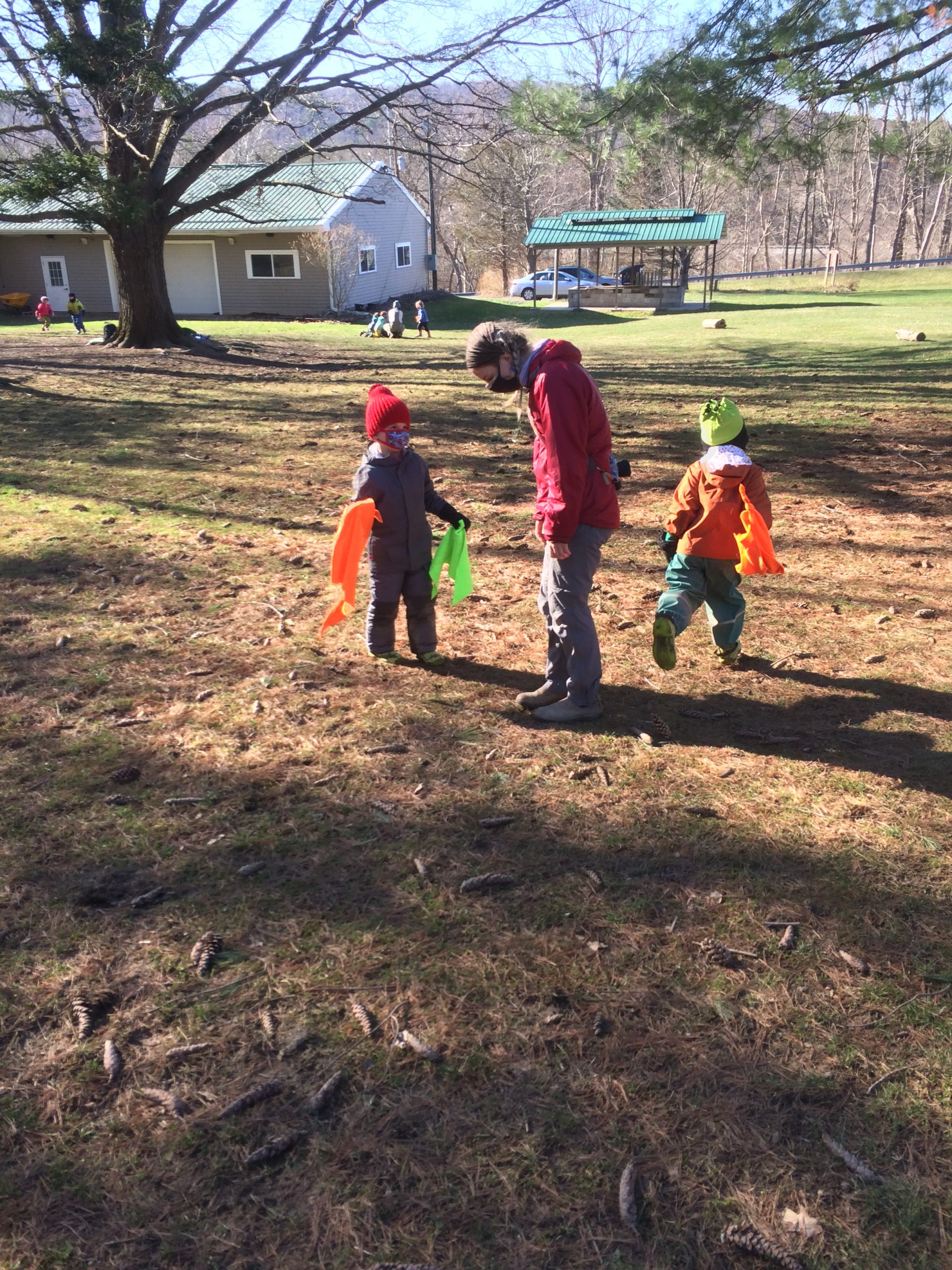

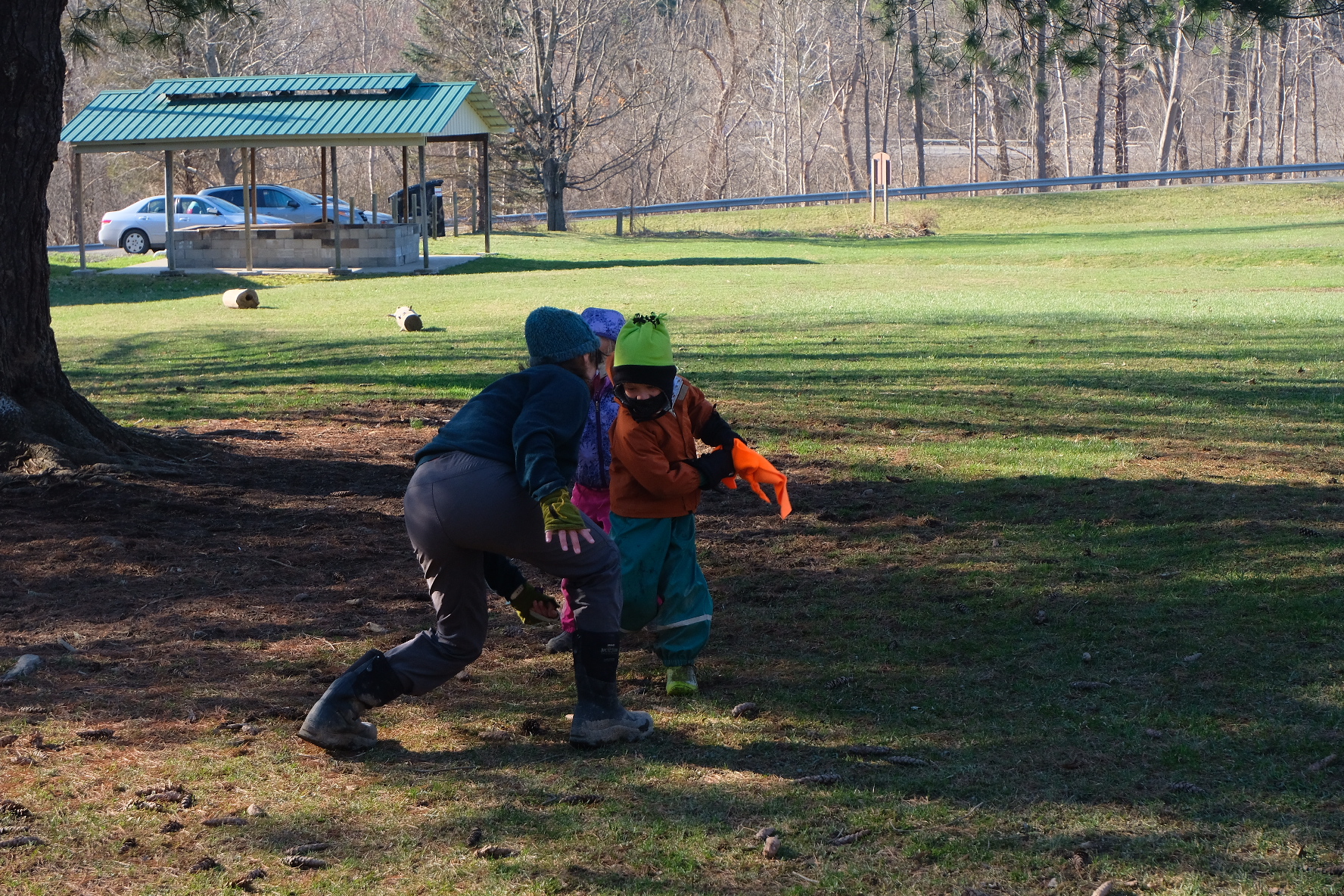
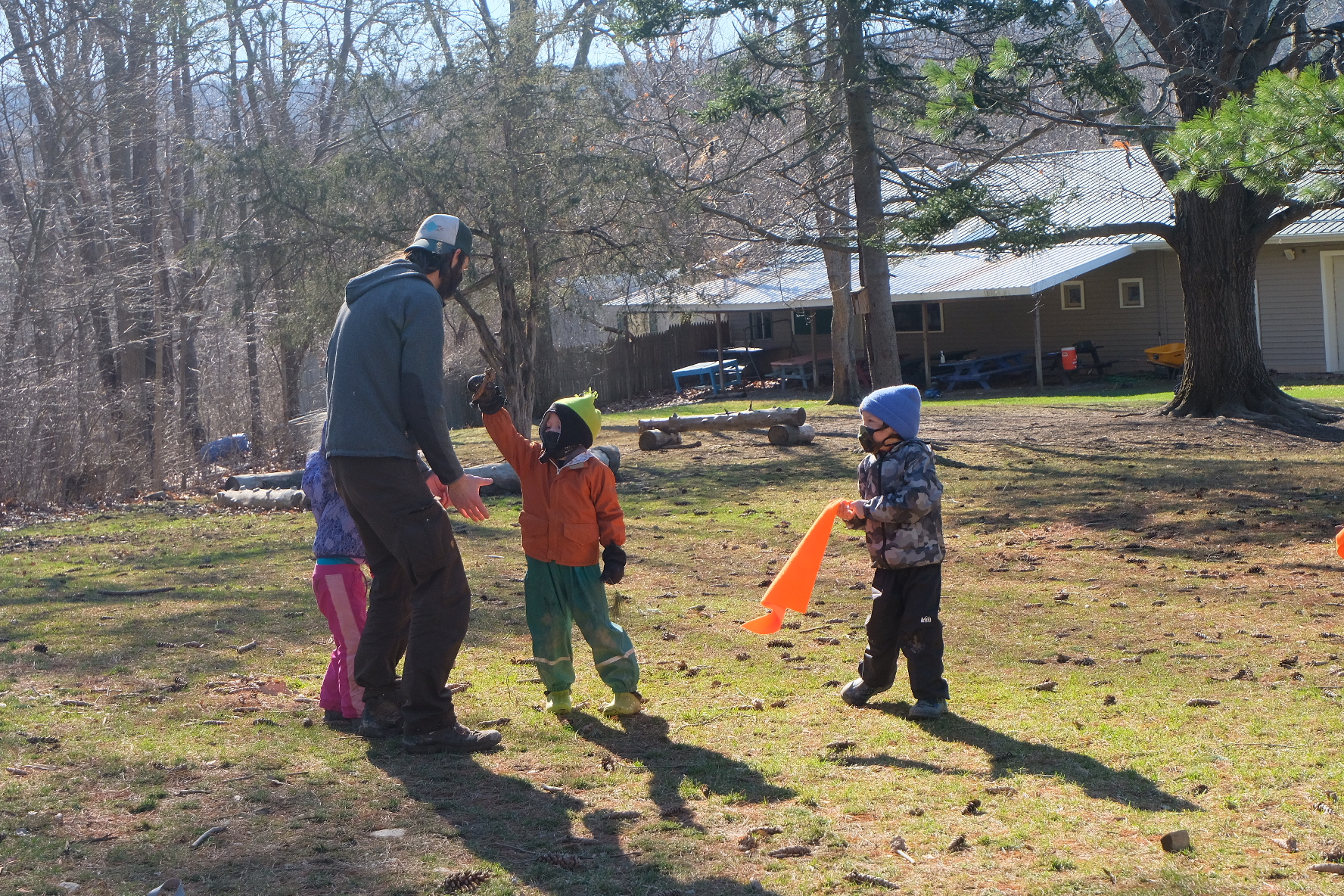
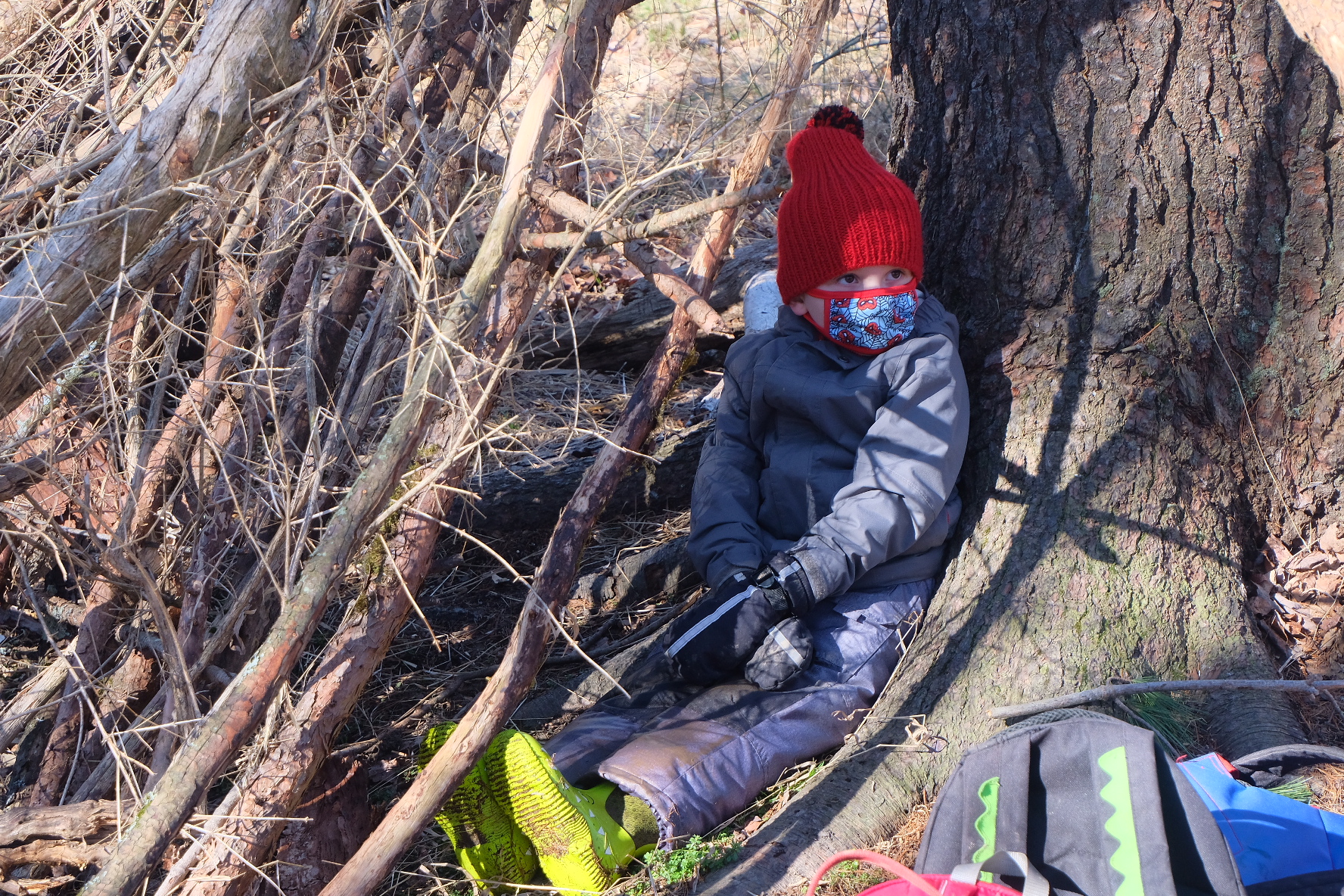
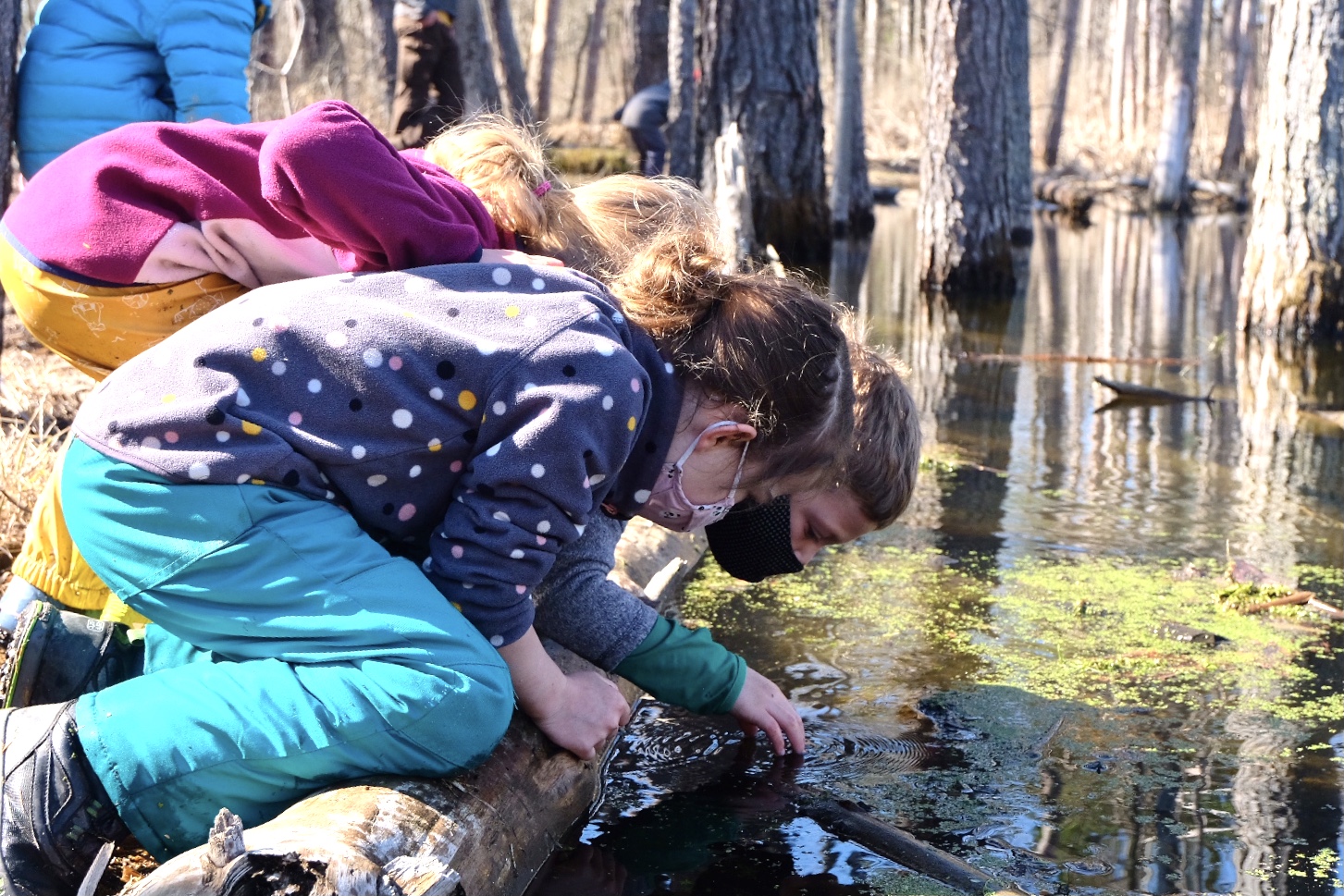
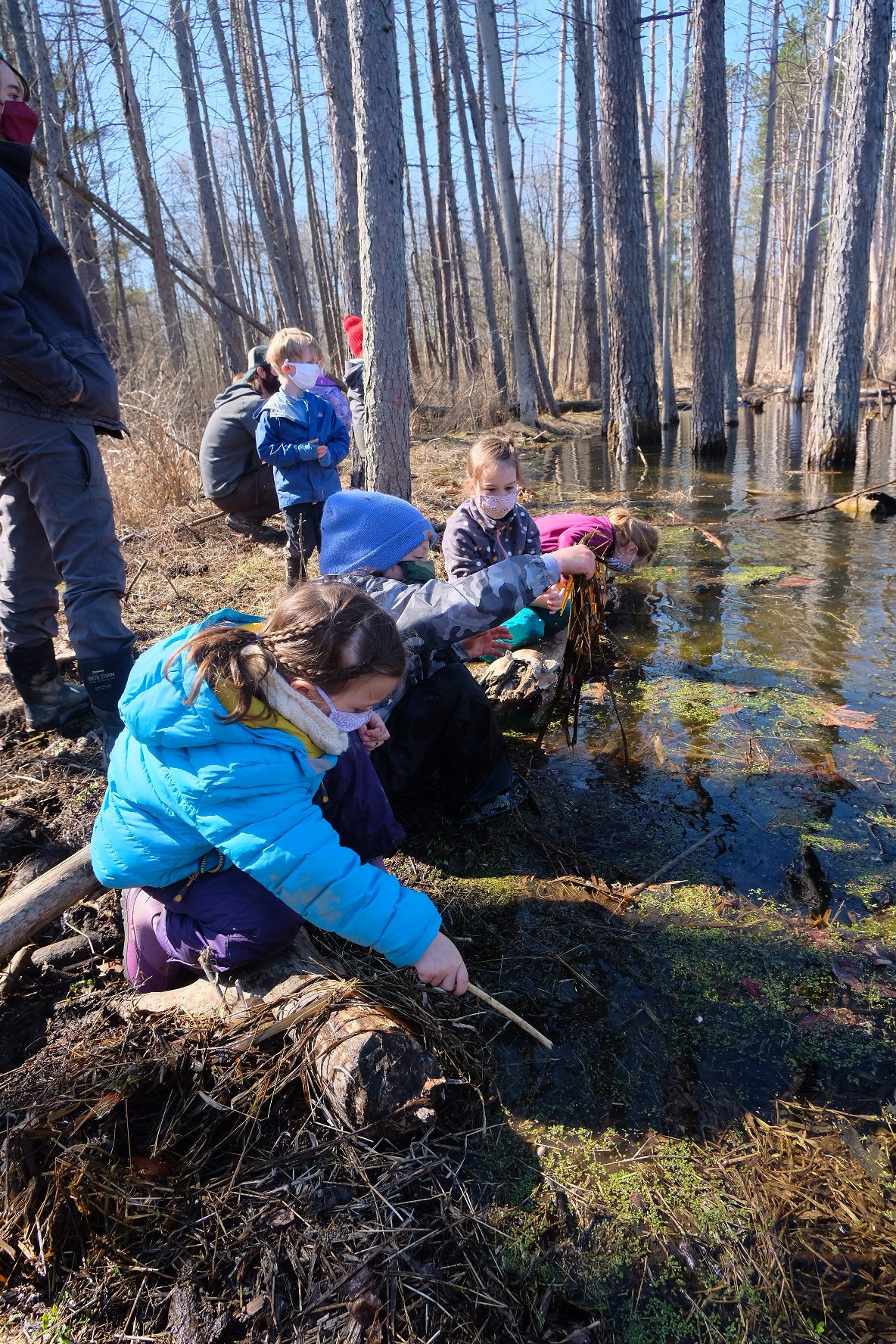
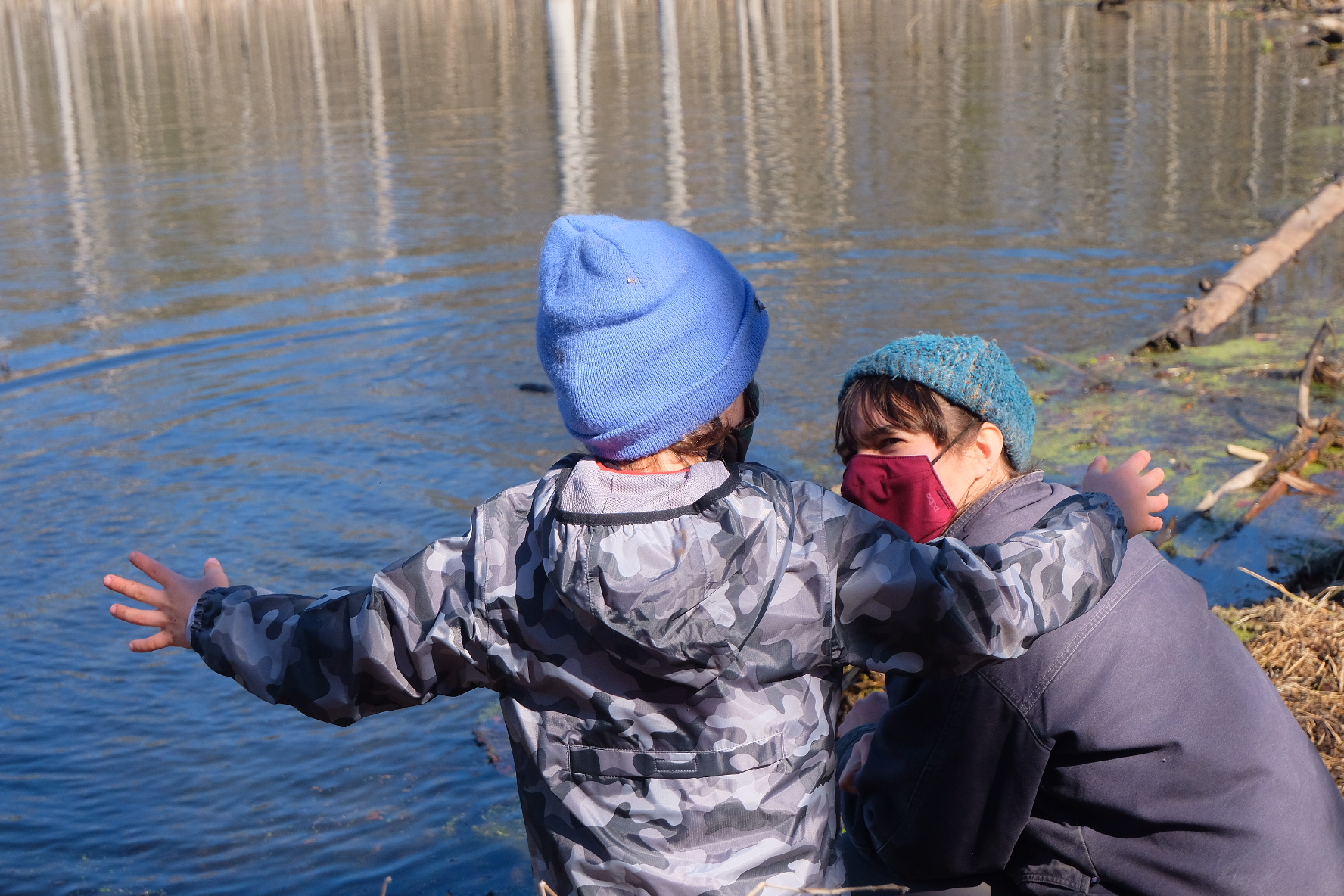
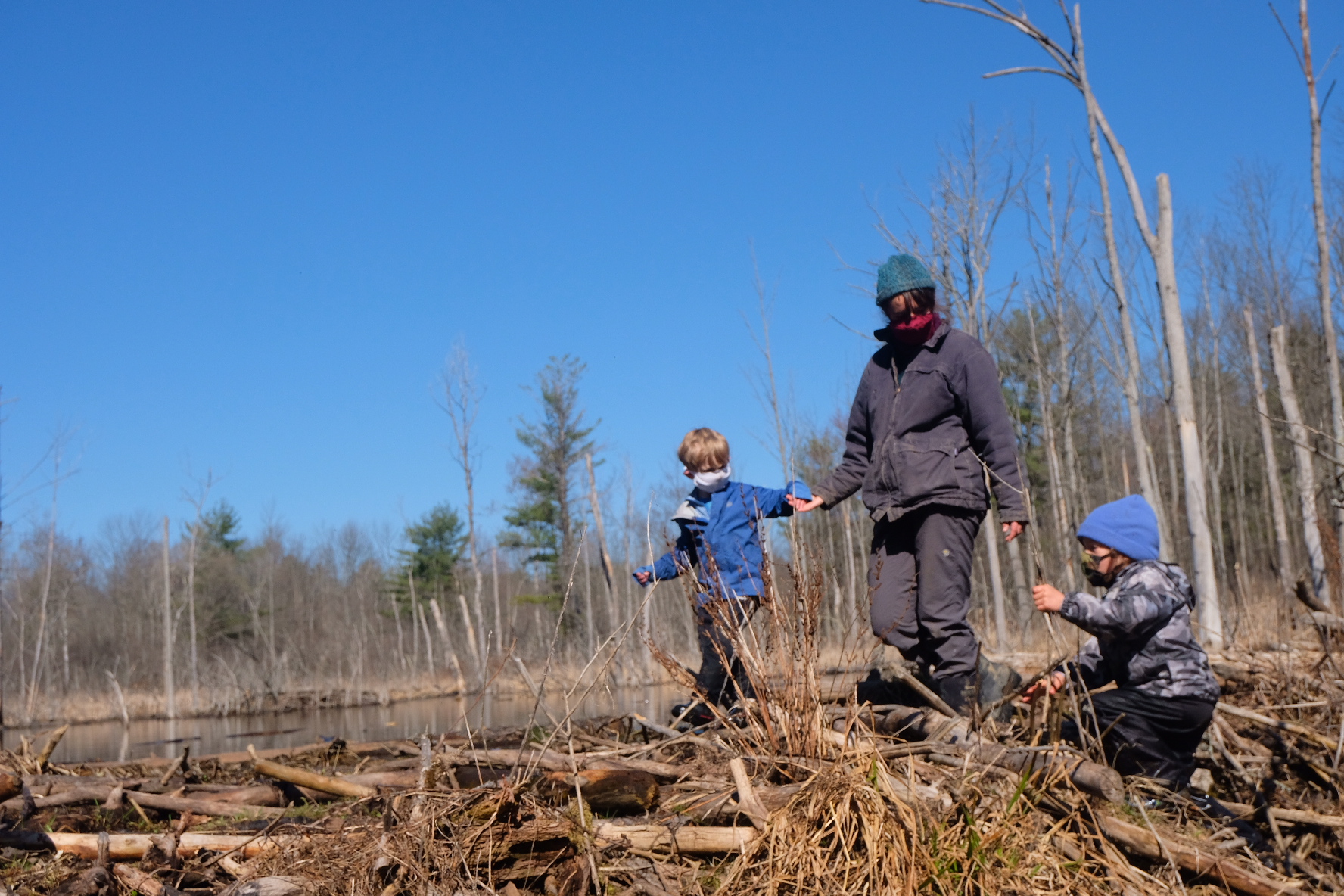
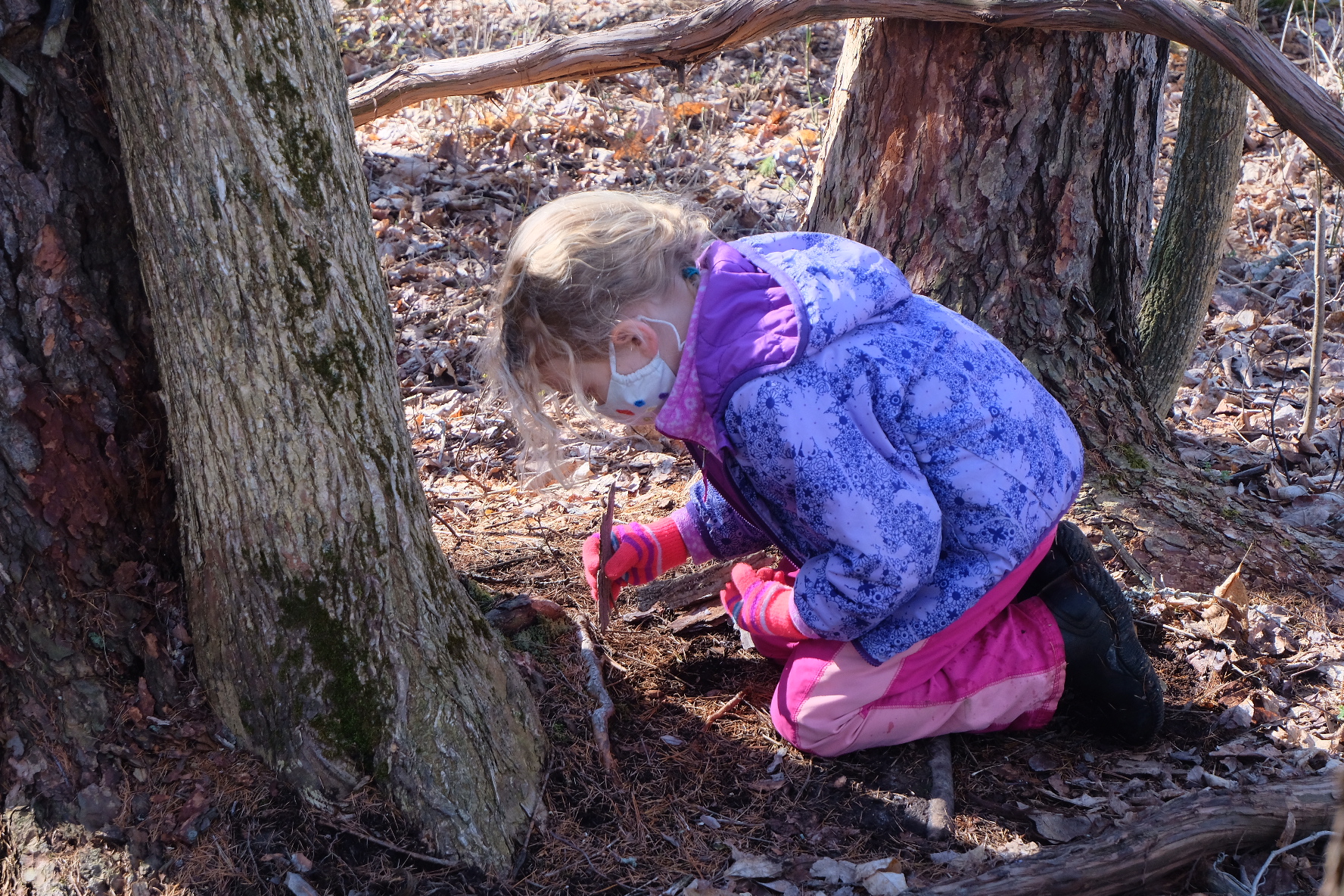
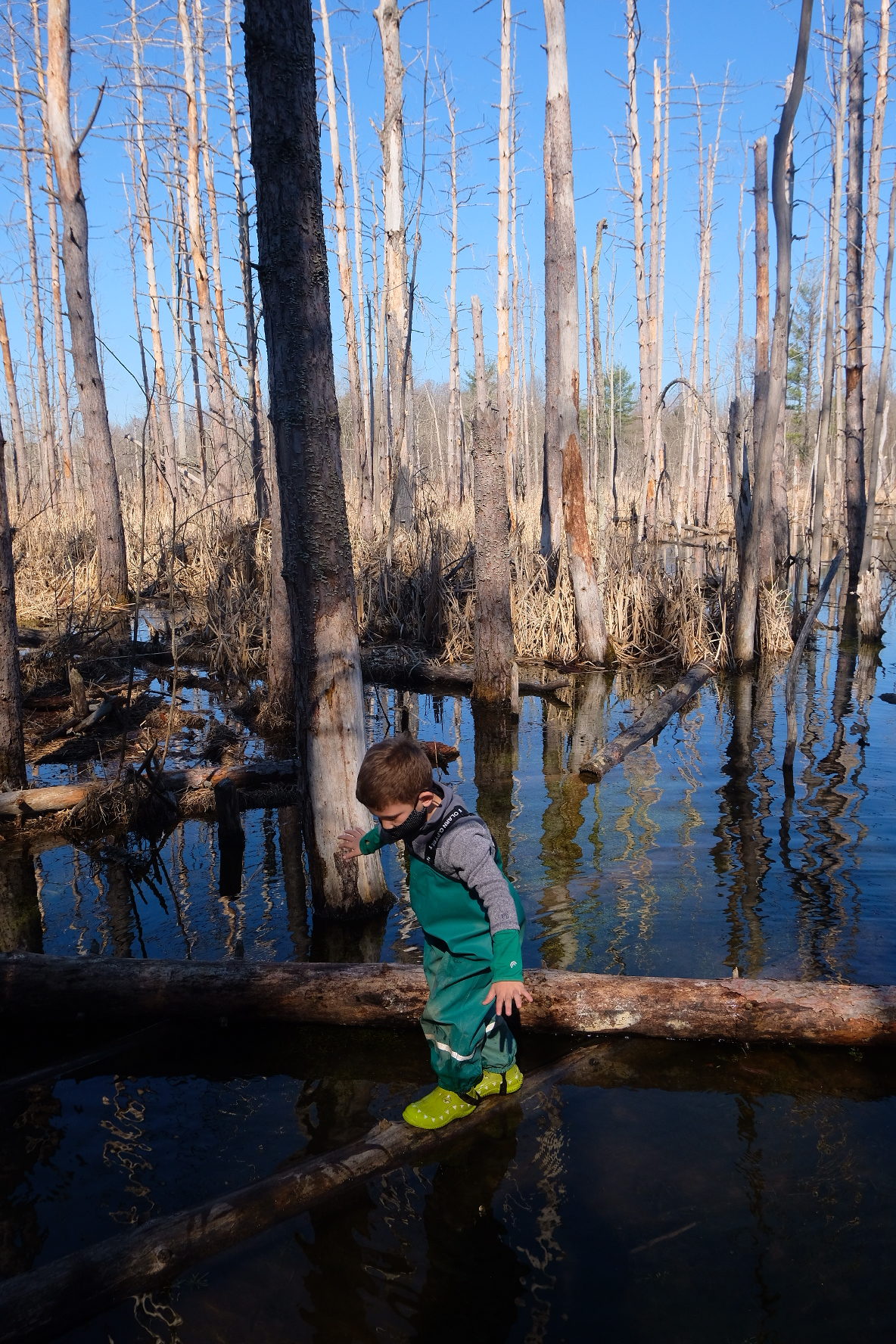
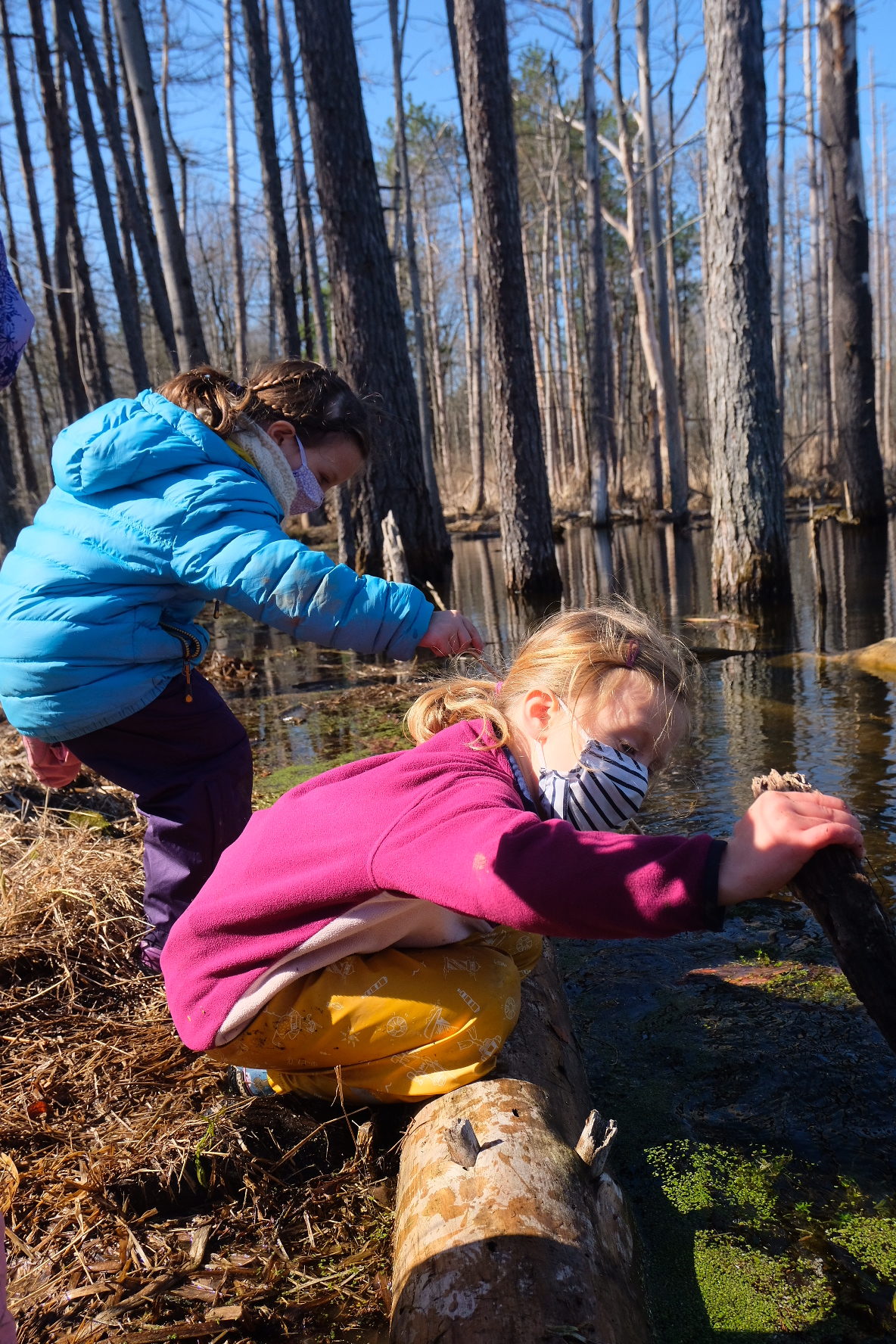
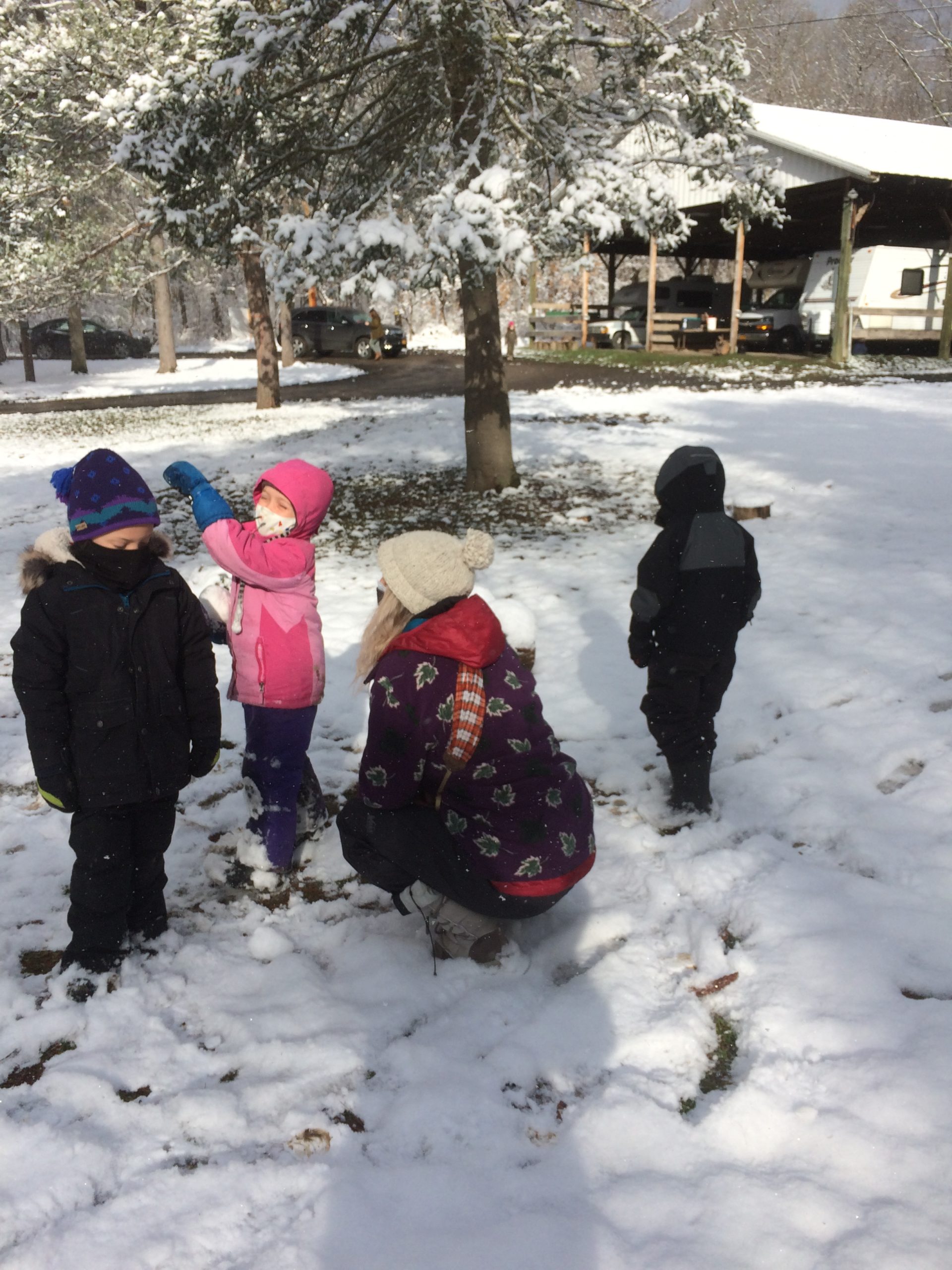

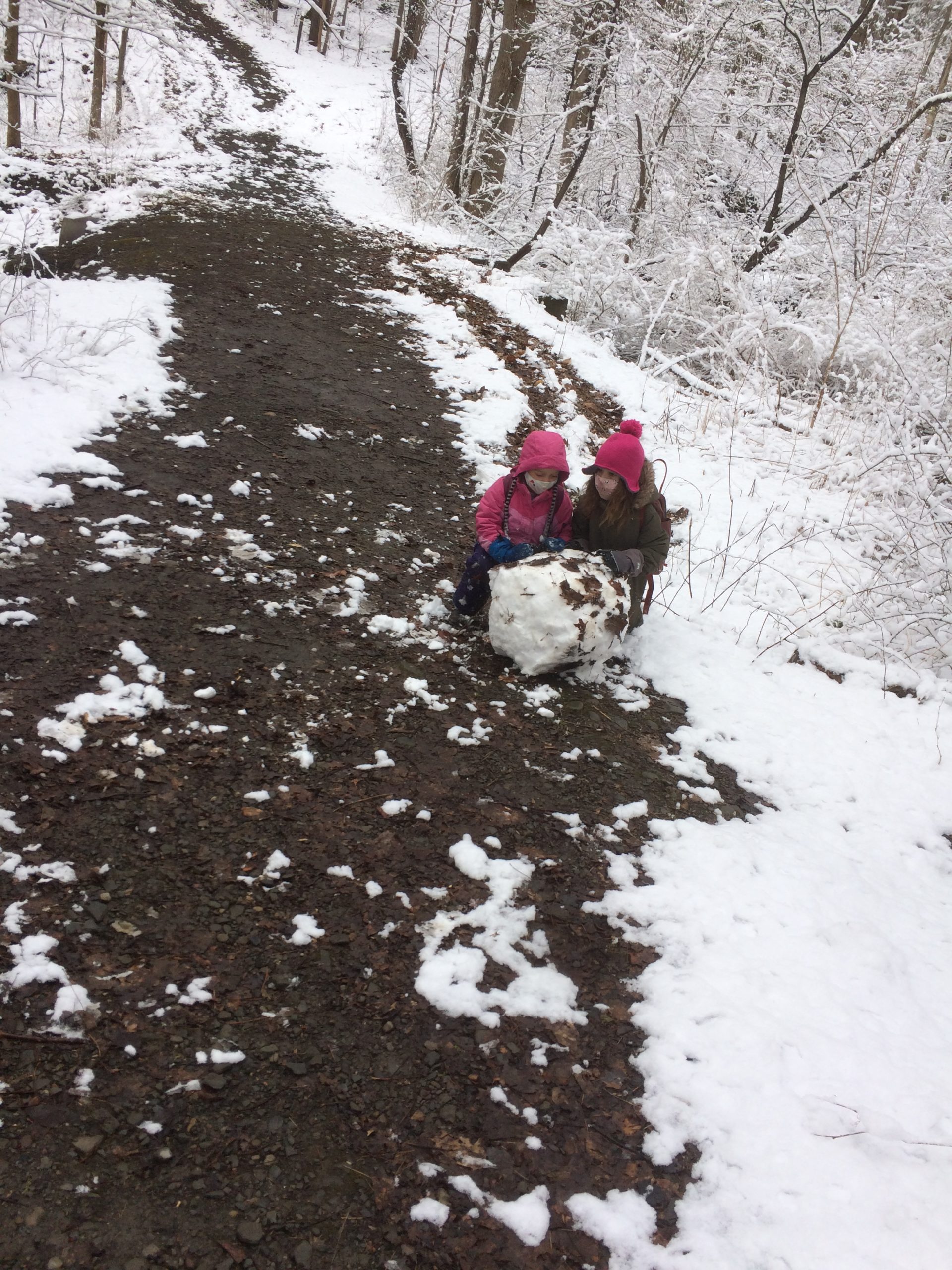
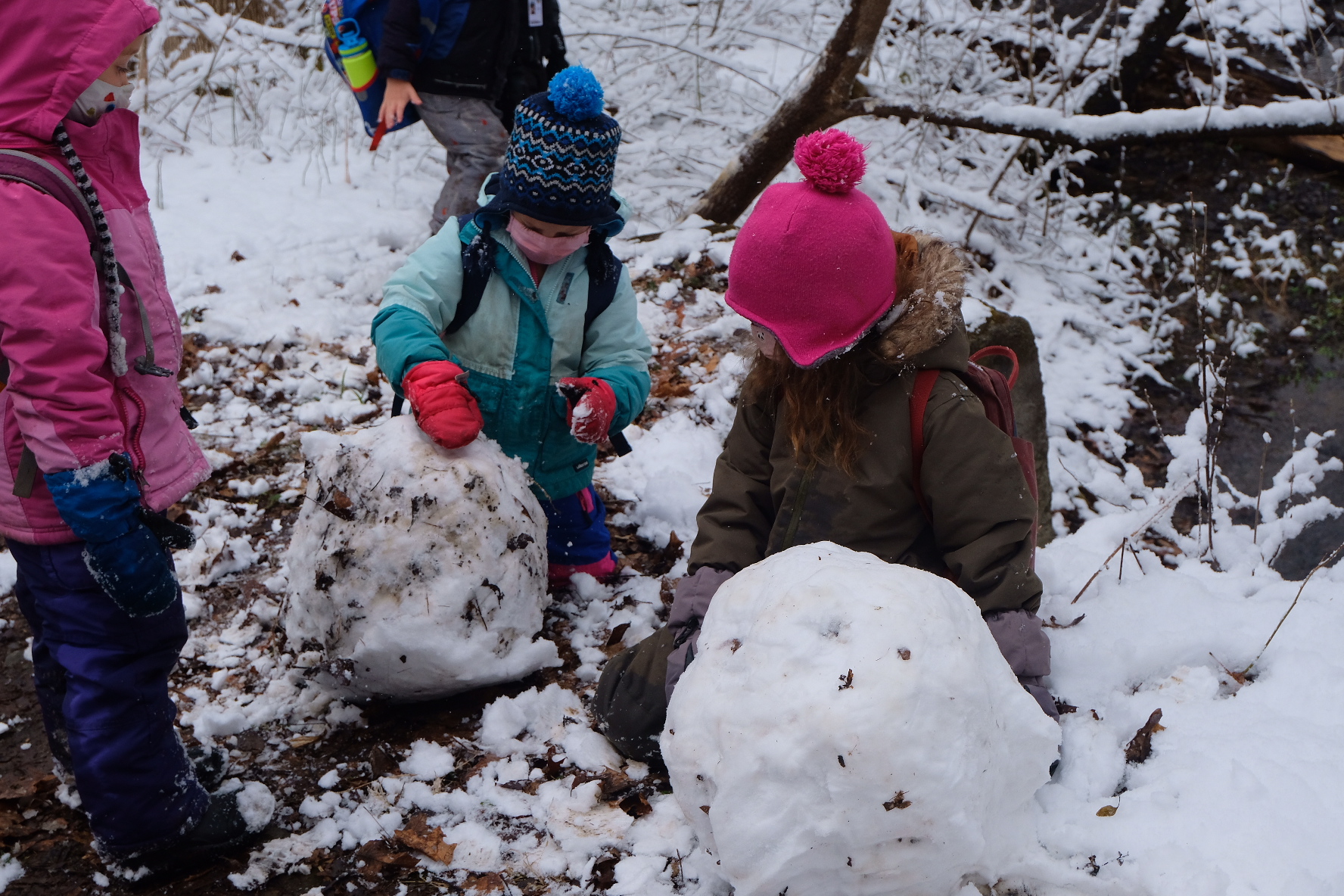
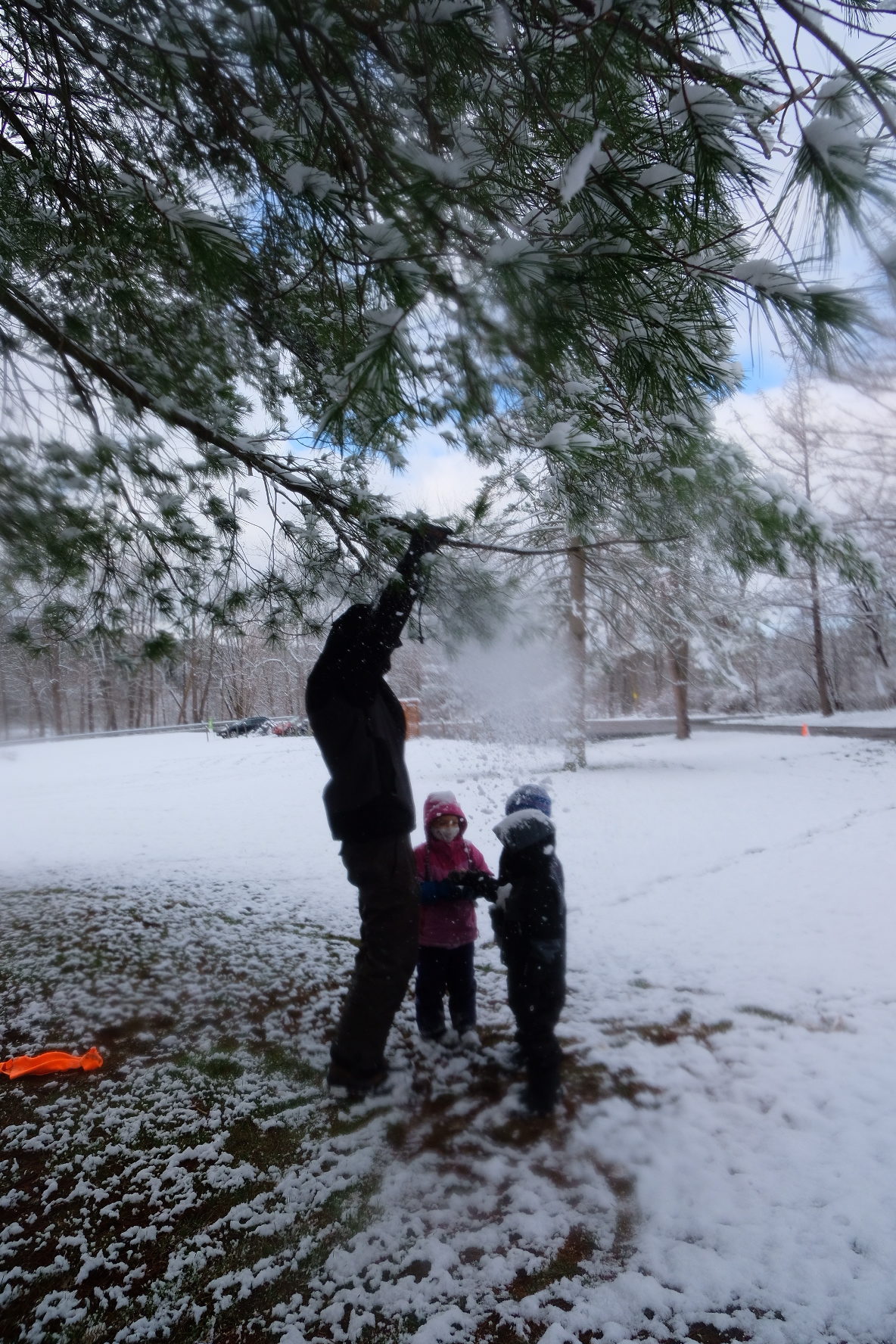

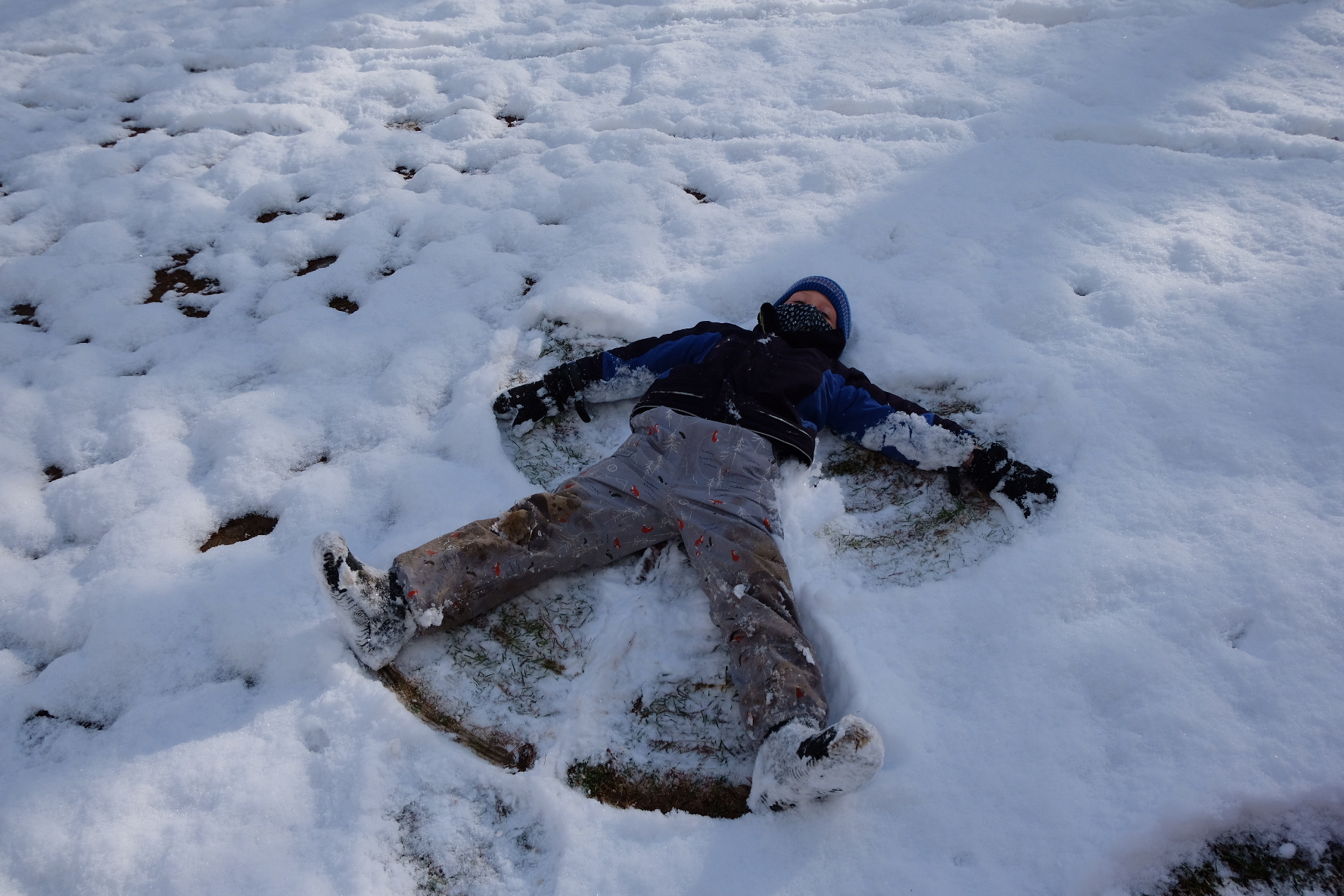
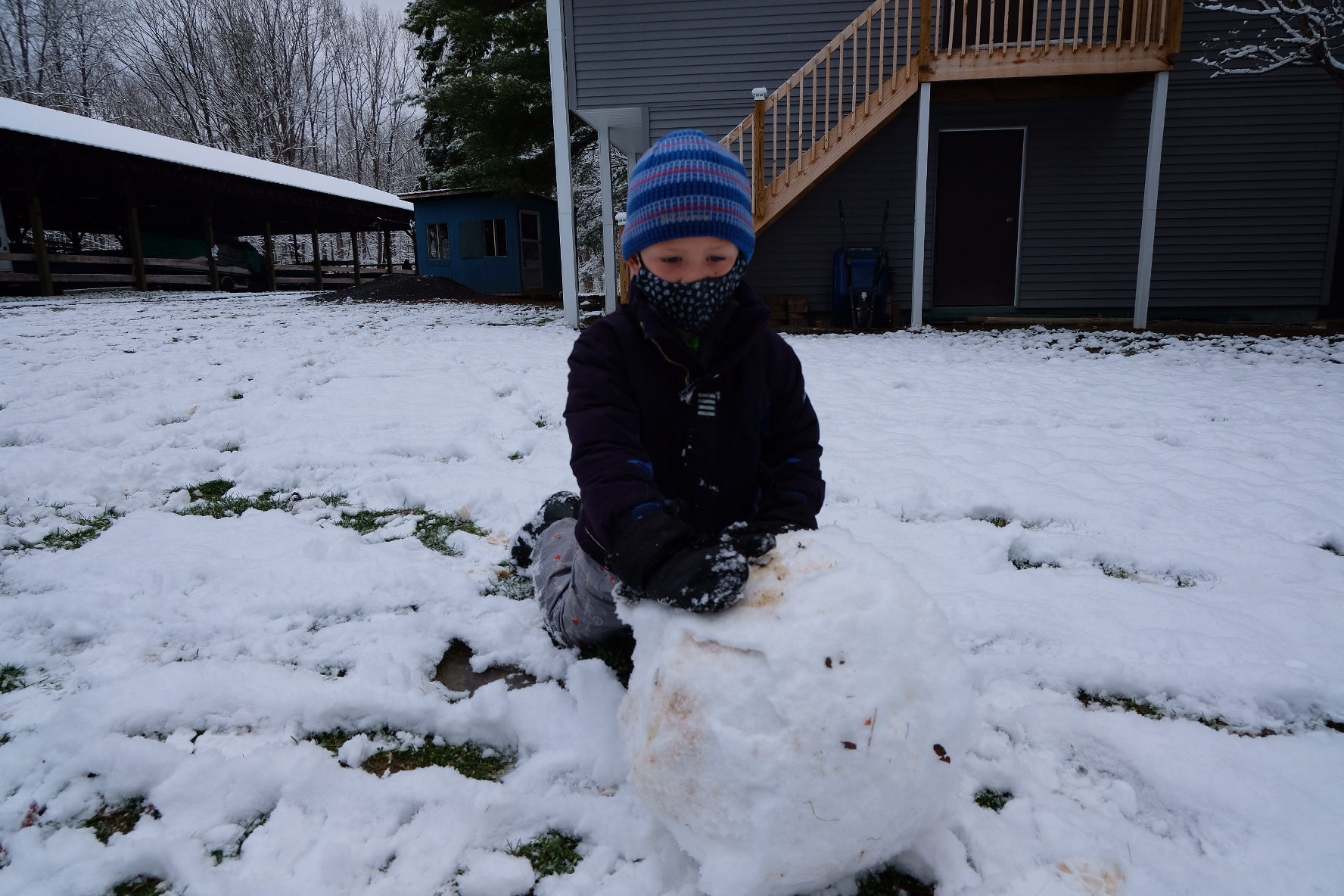
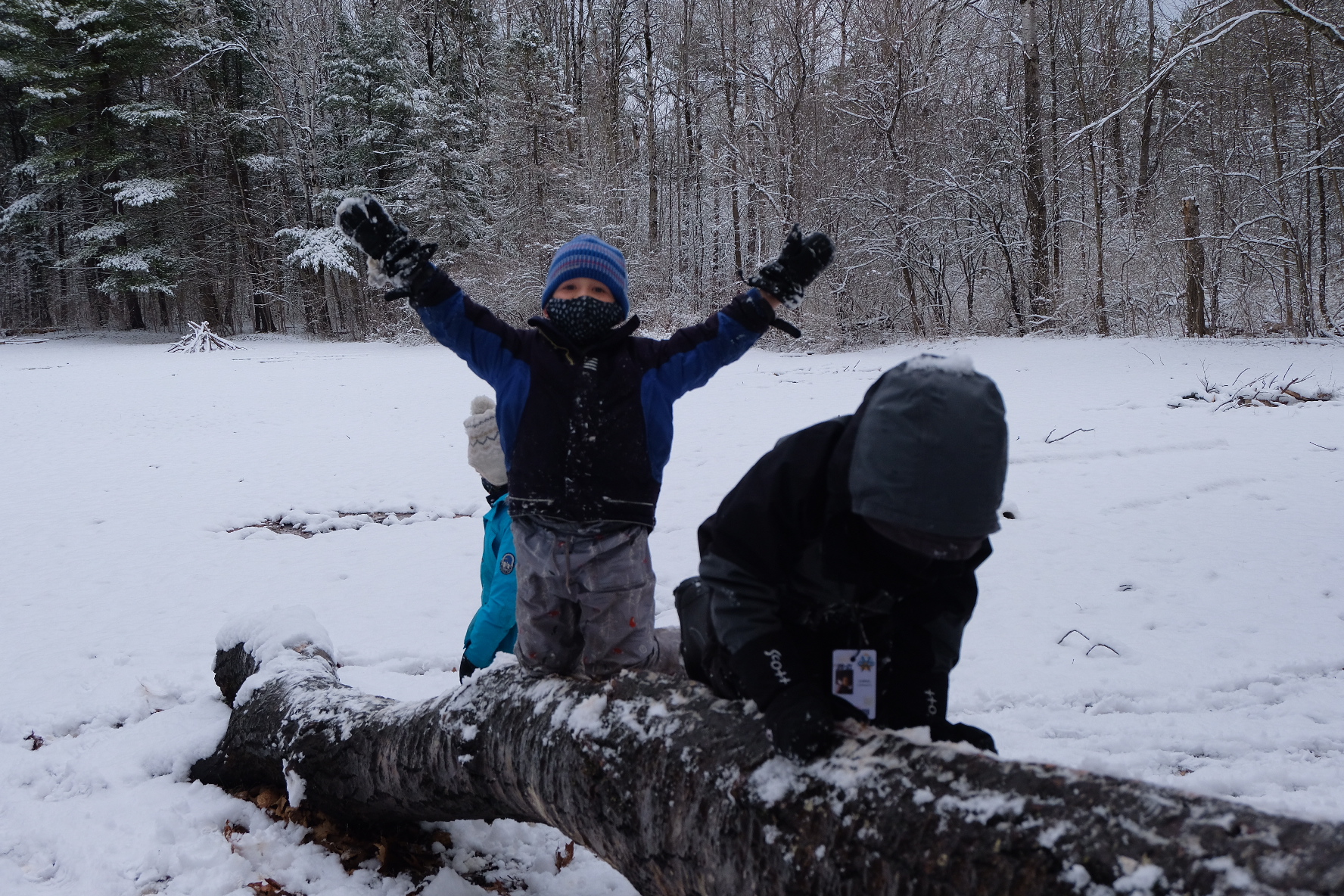
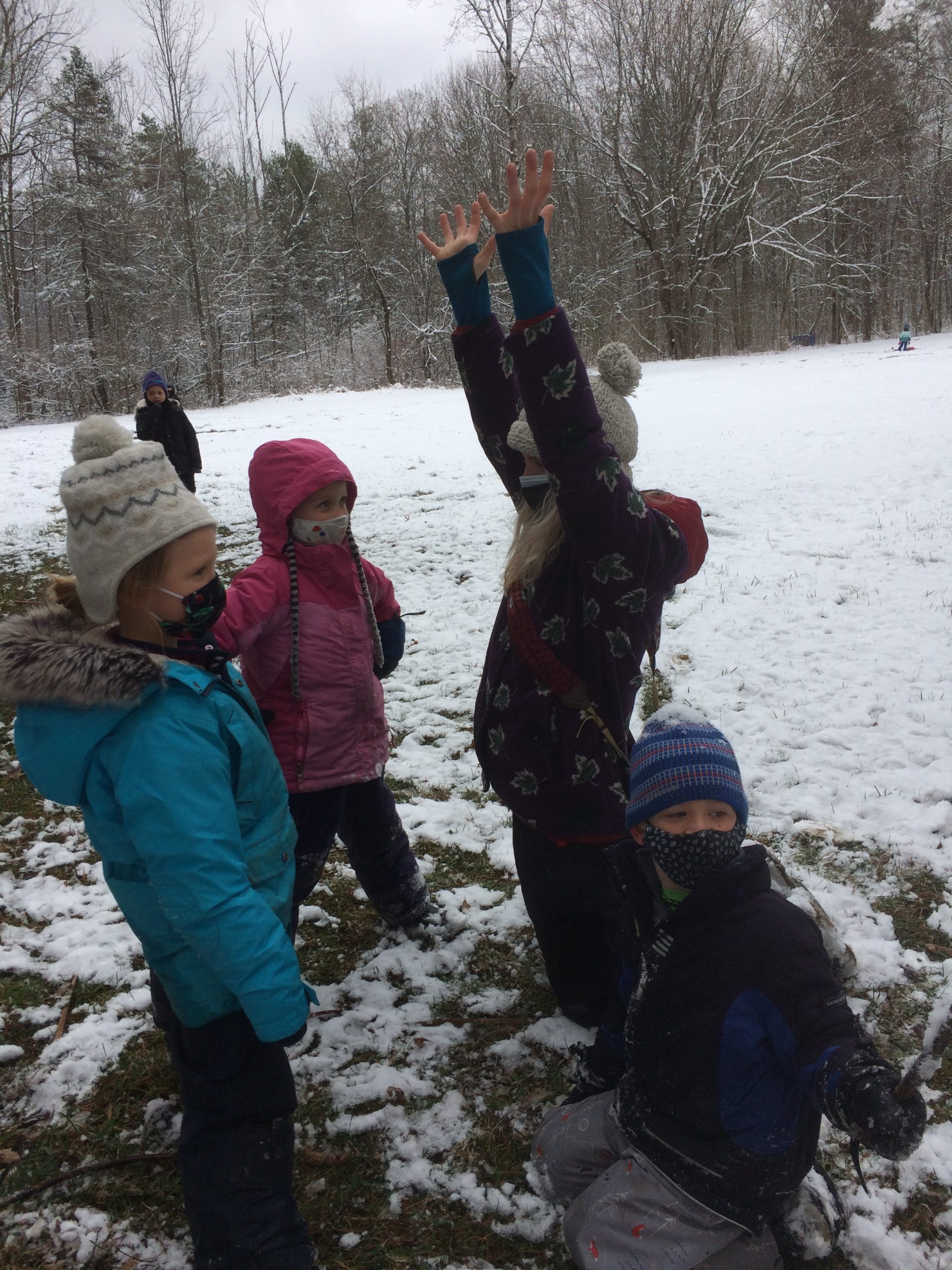
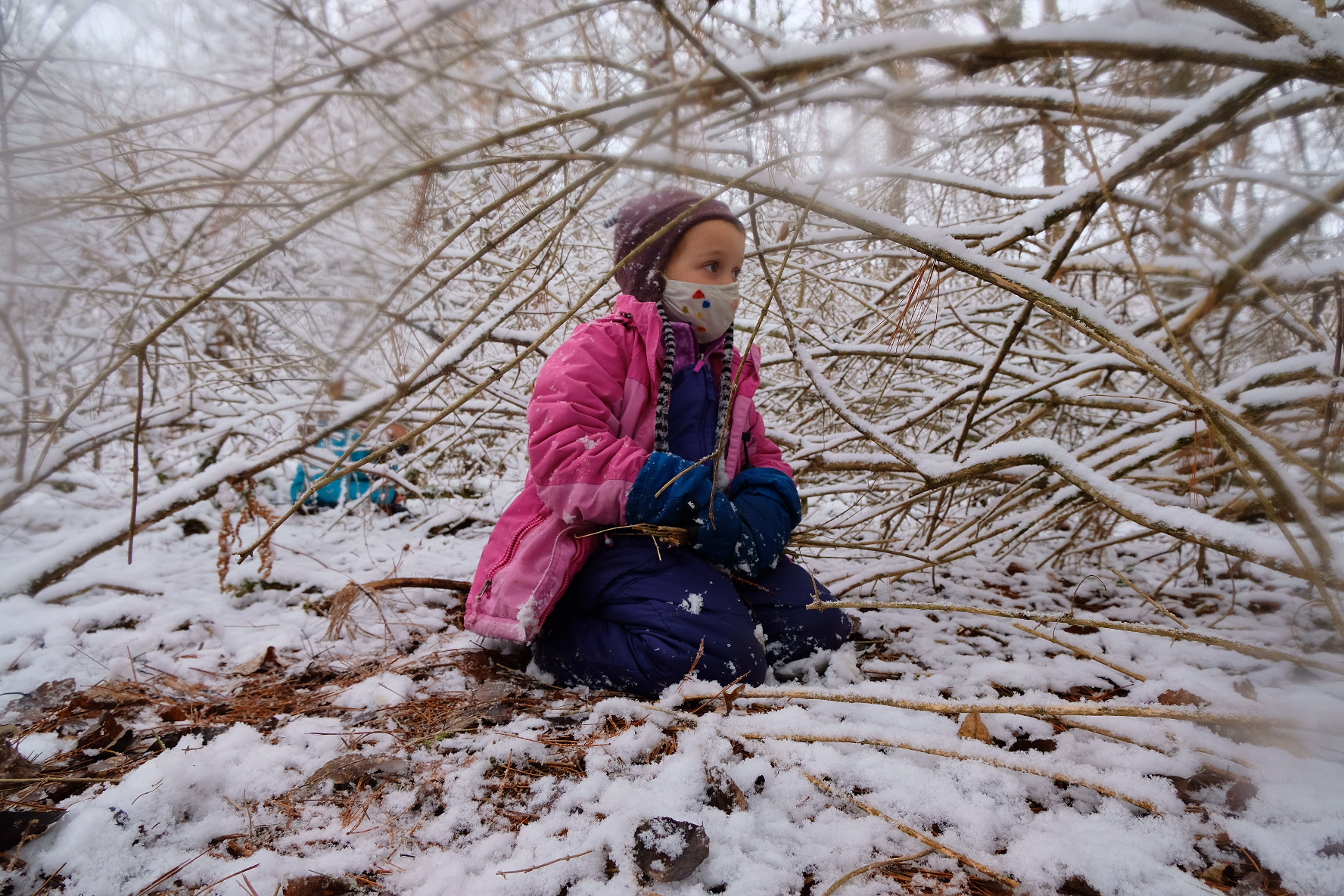
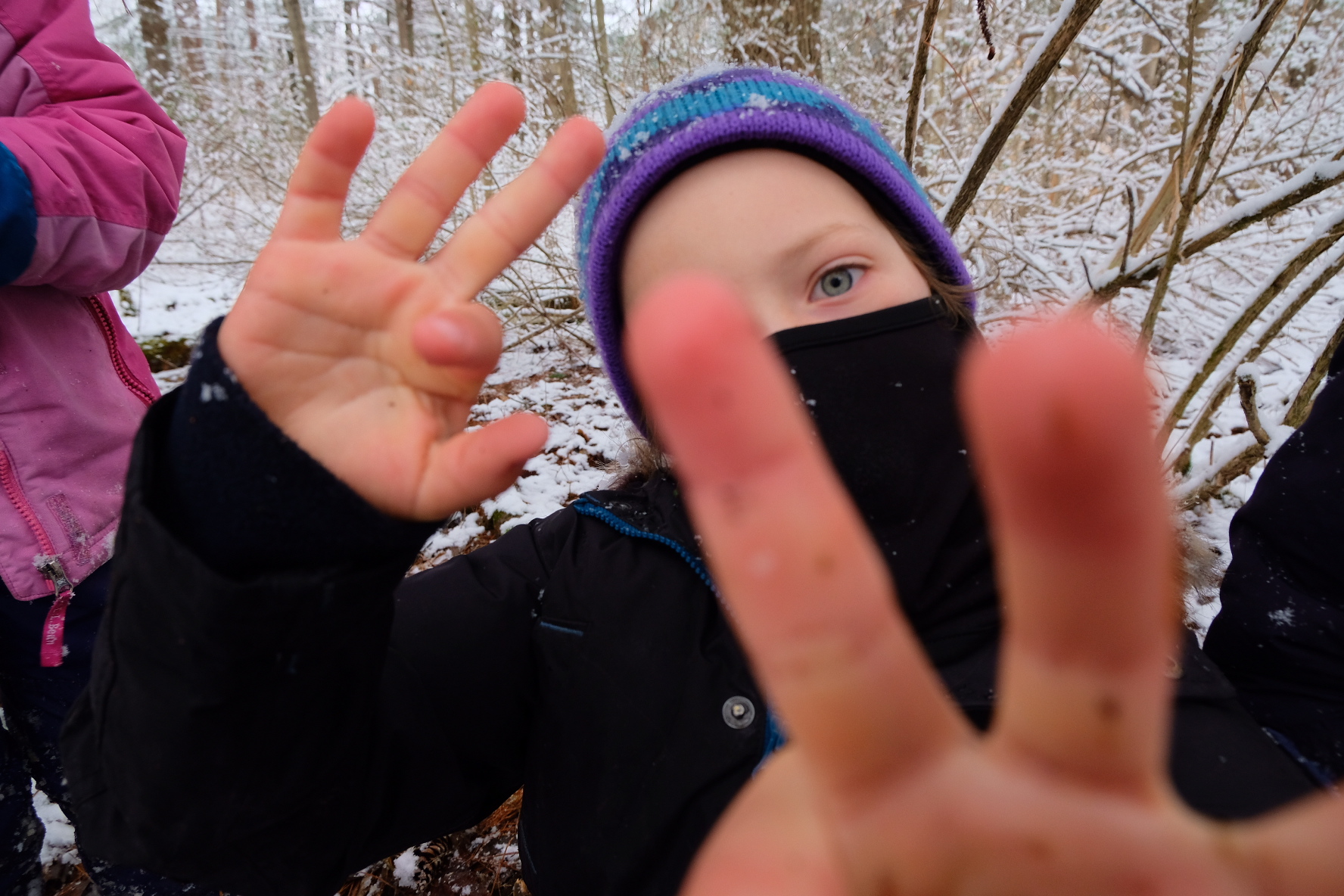



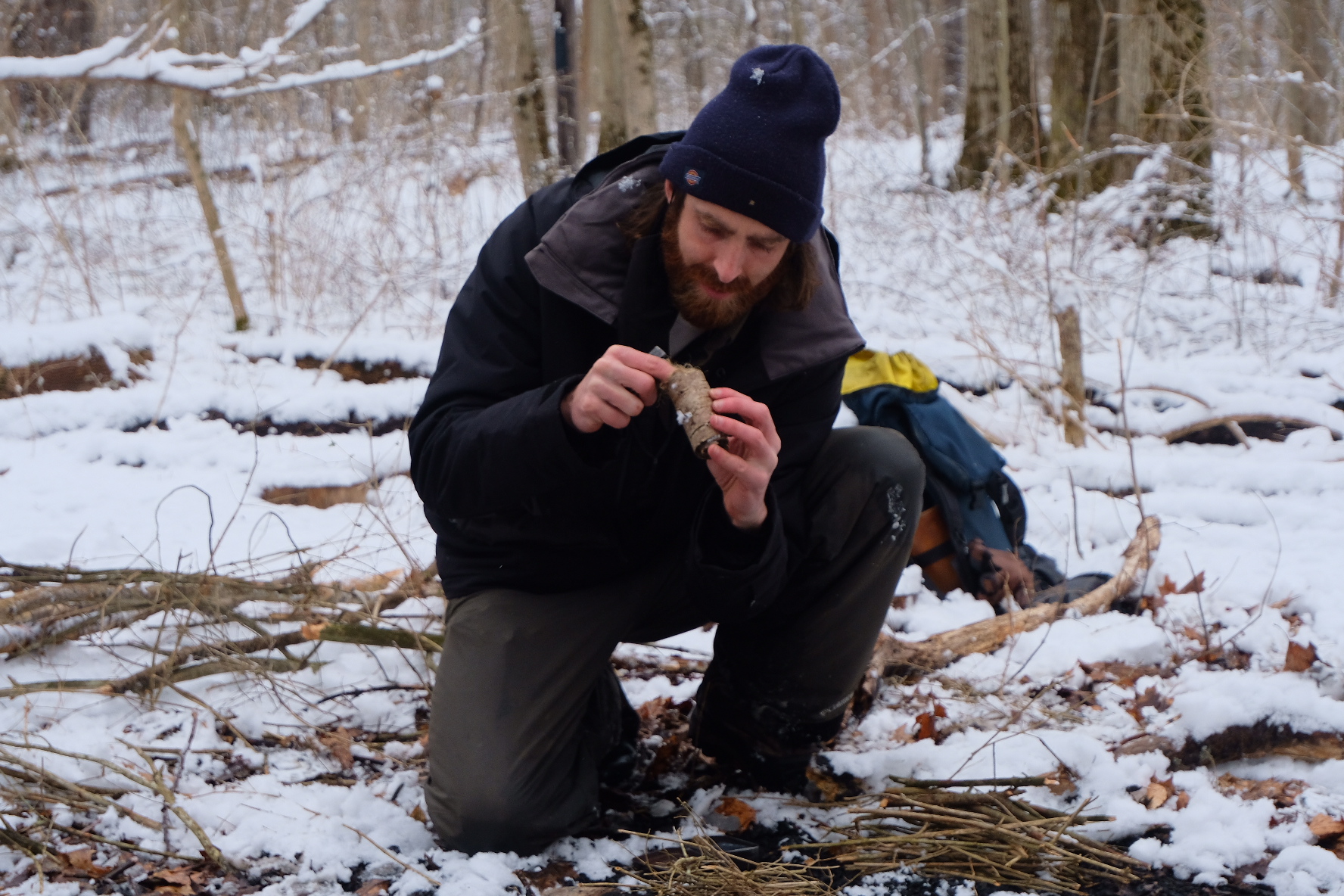
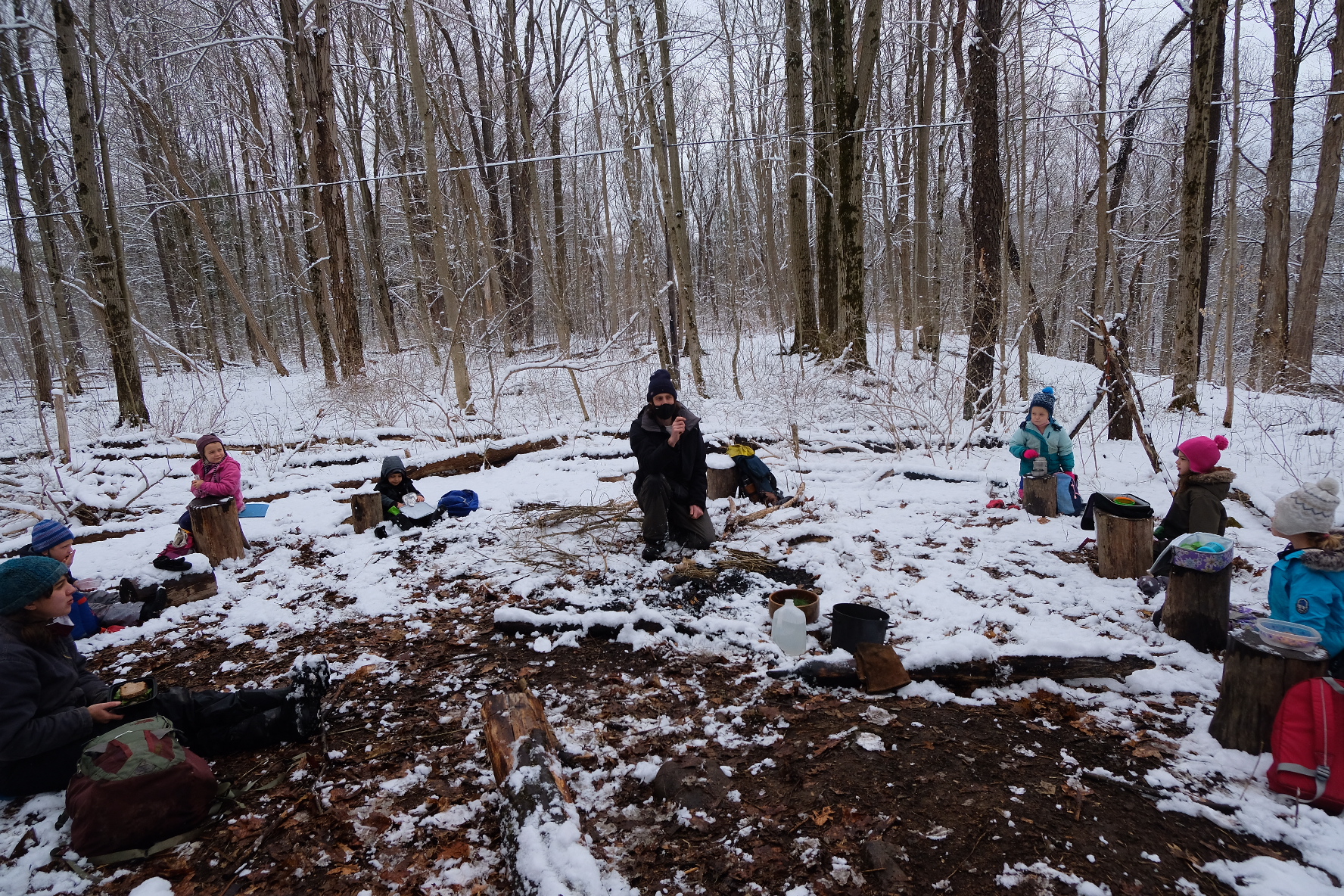
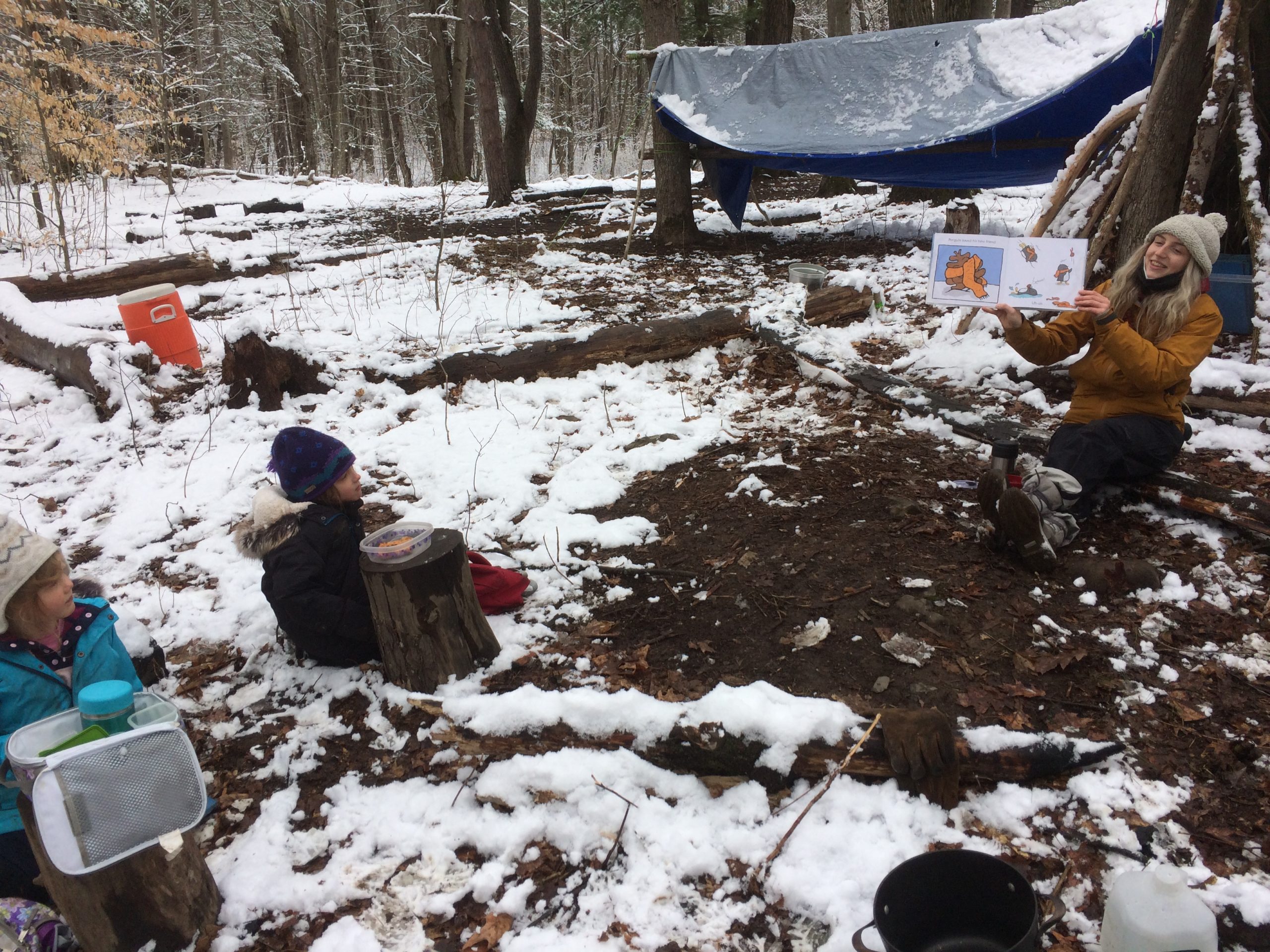
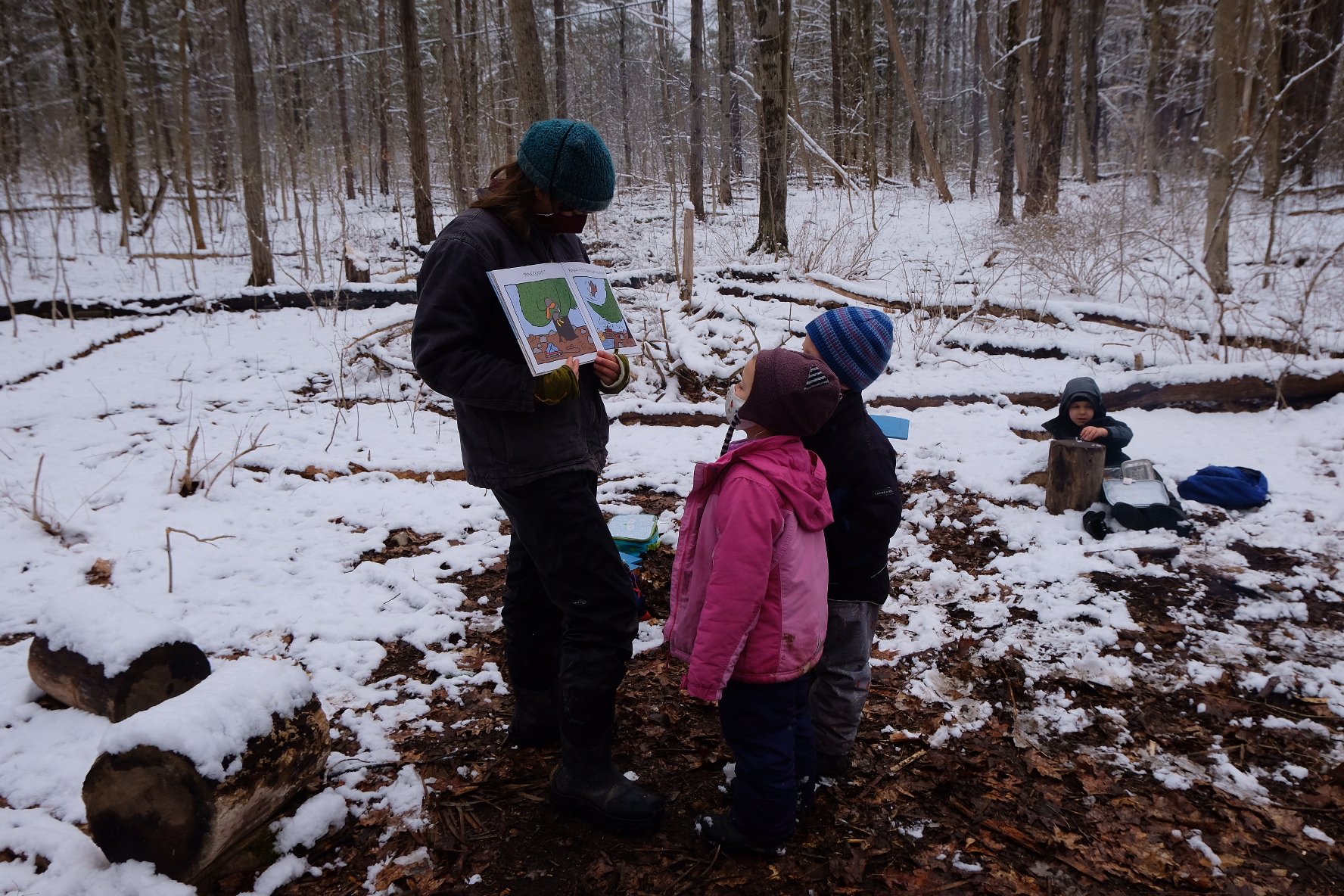


Recent Comments